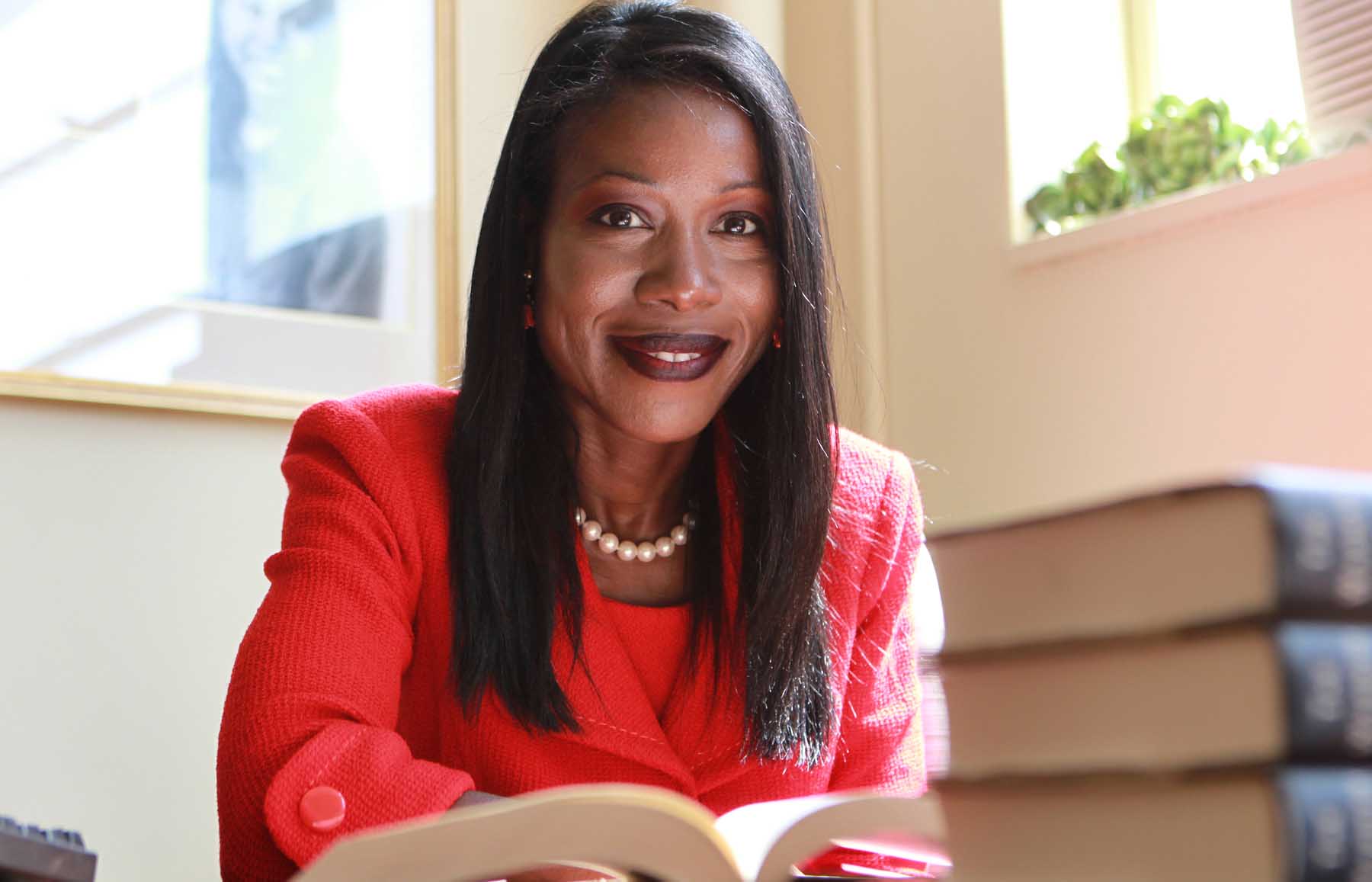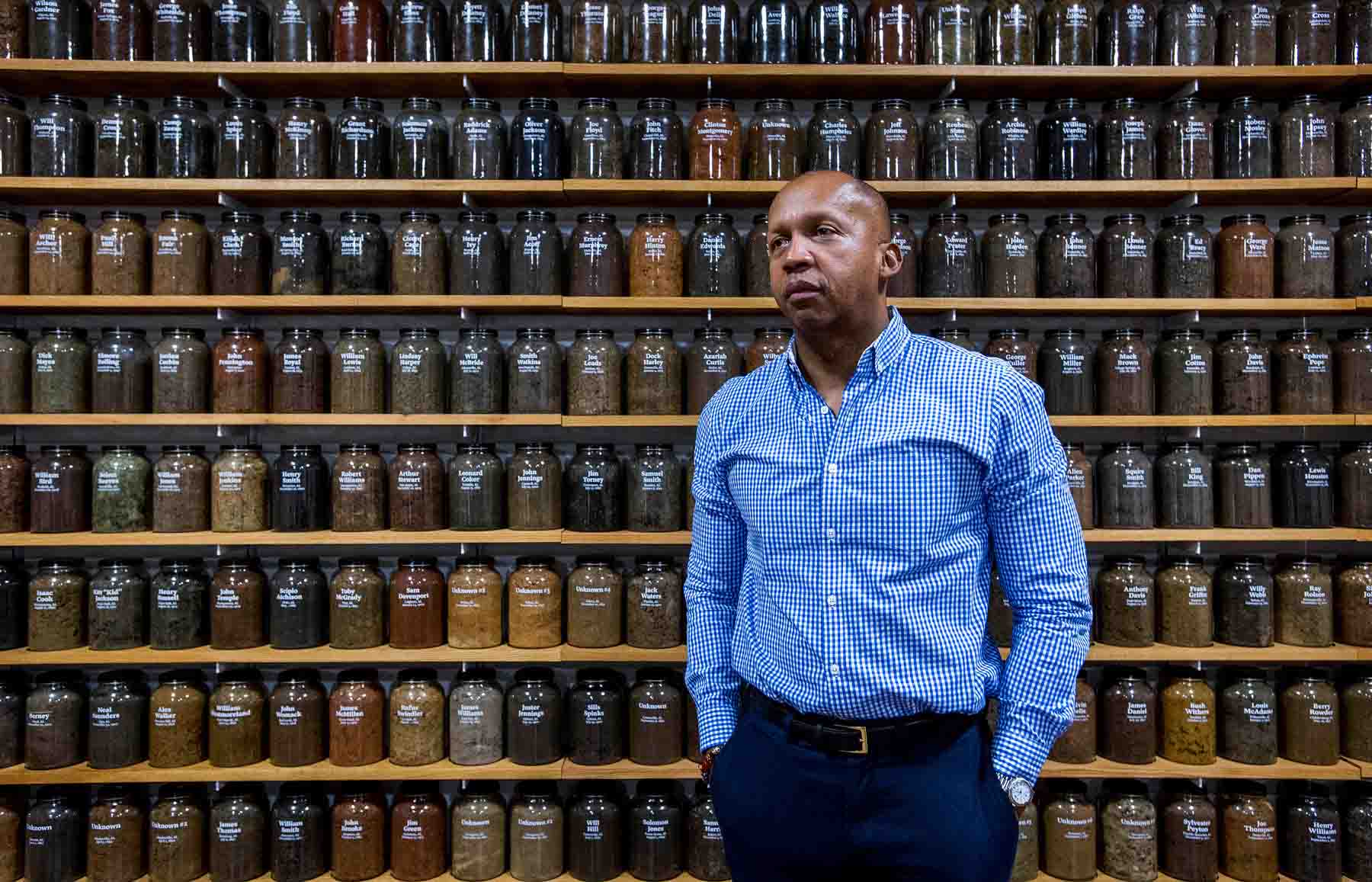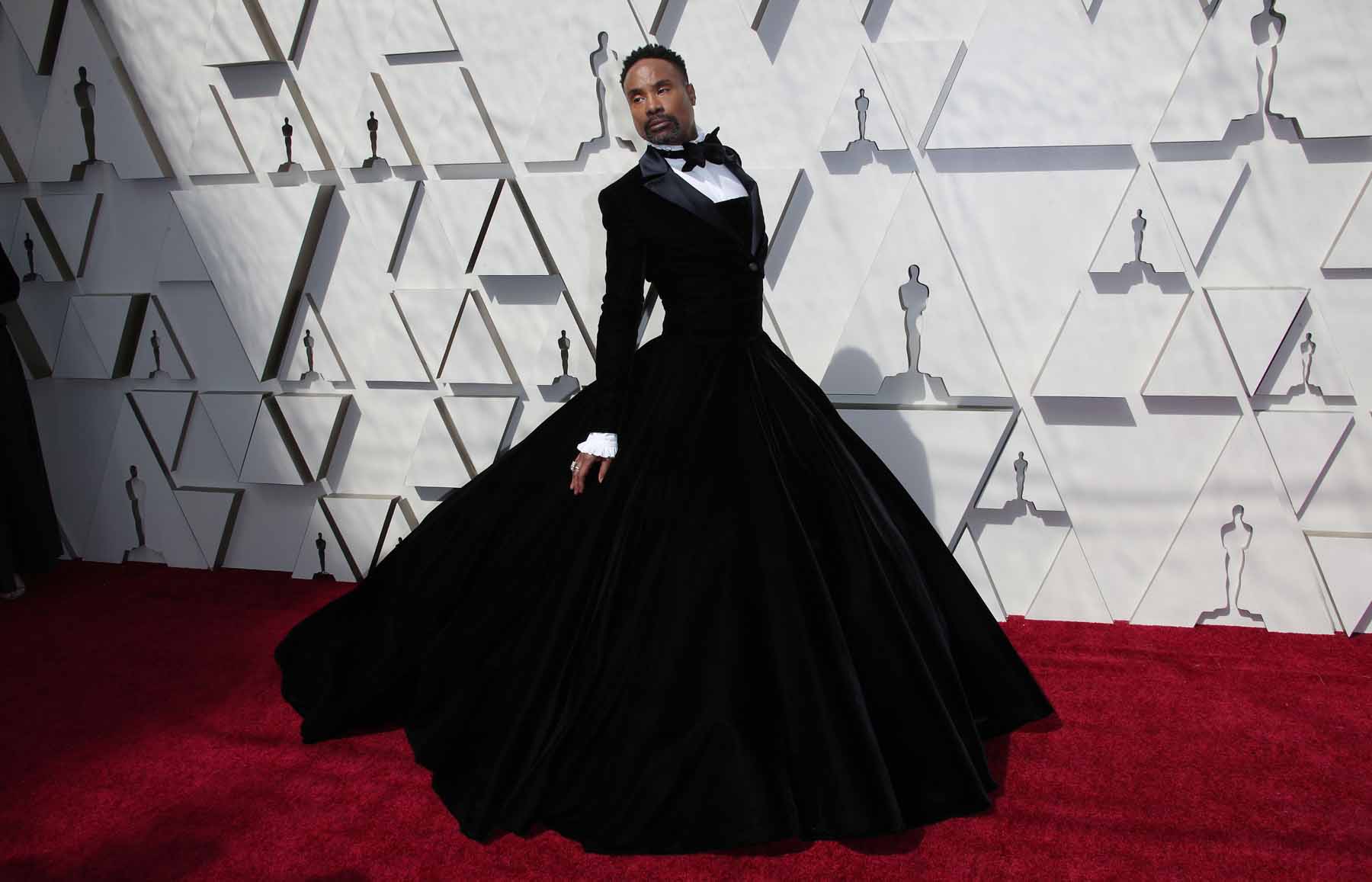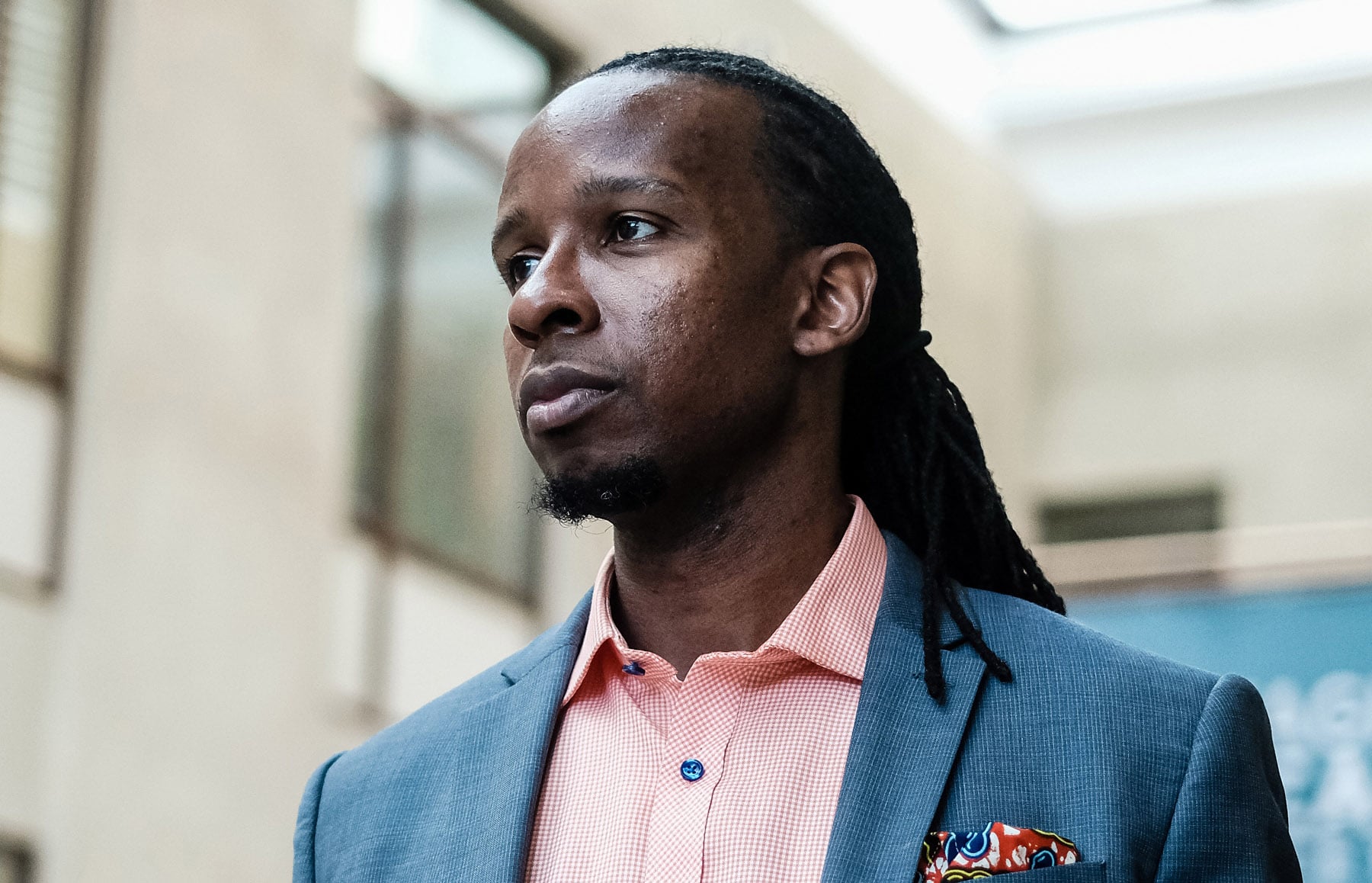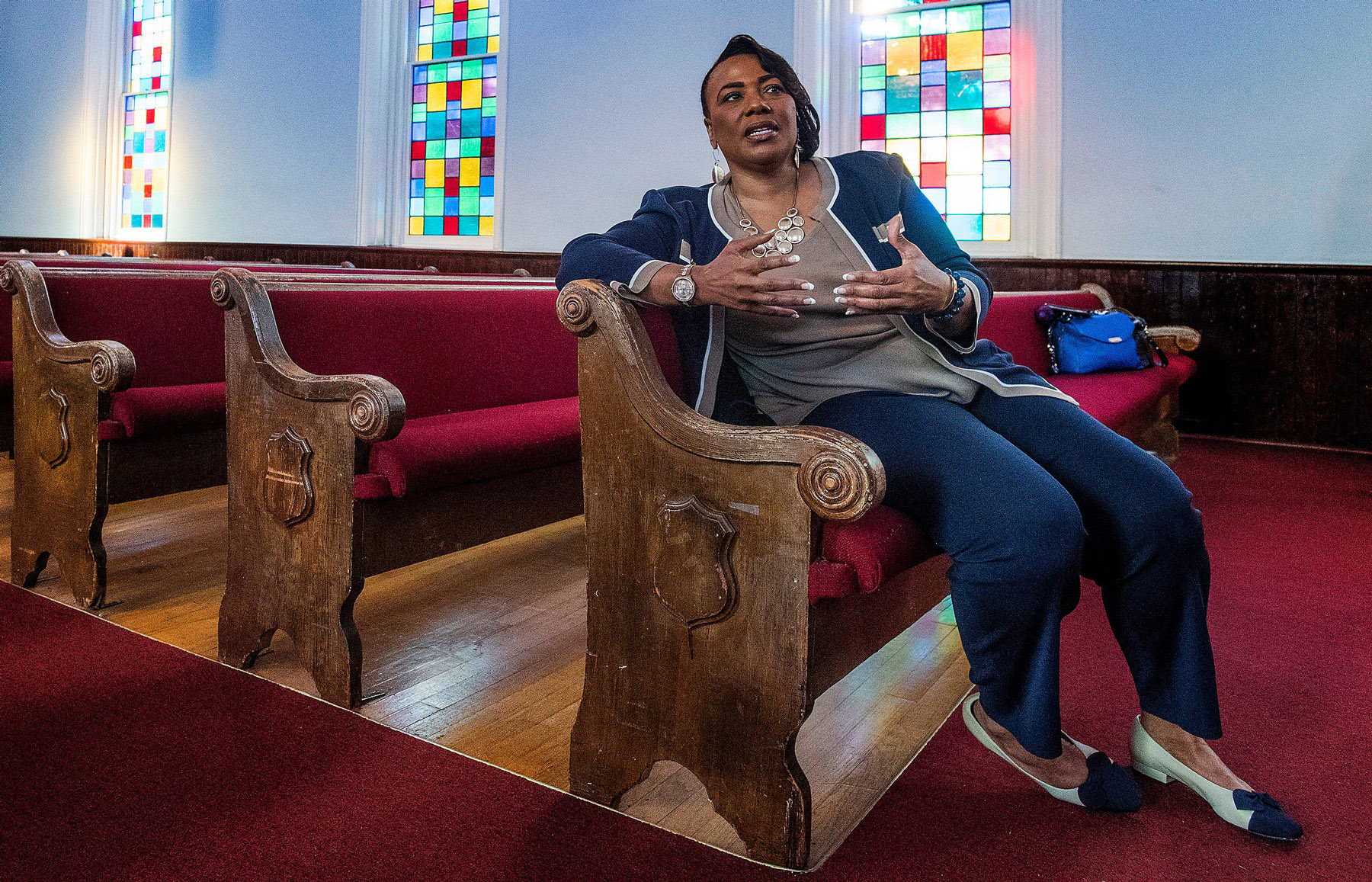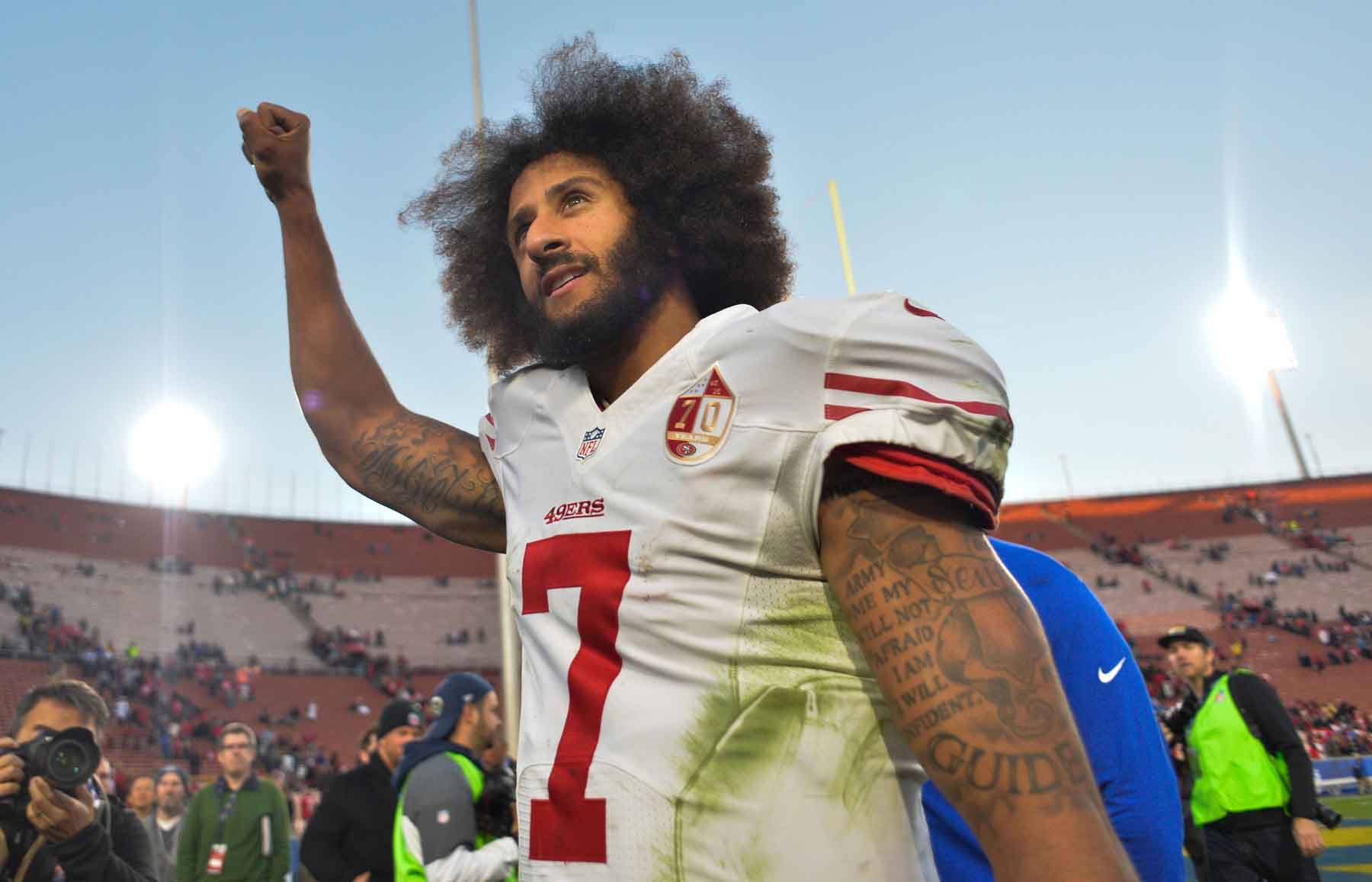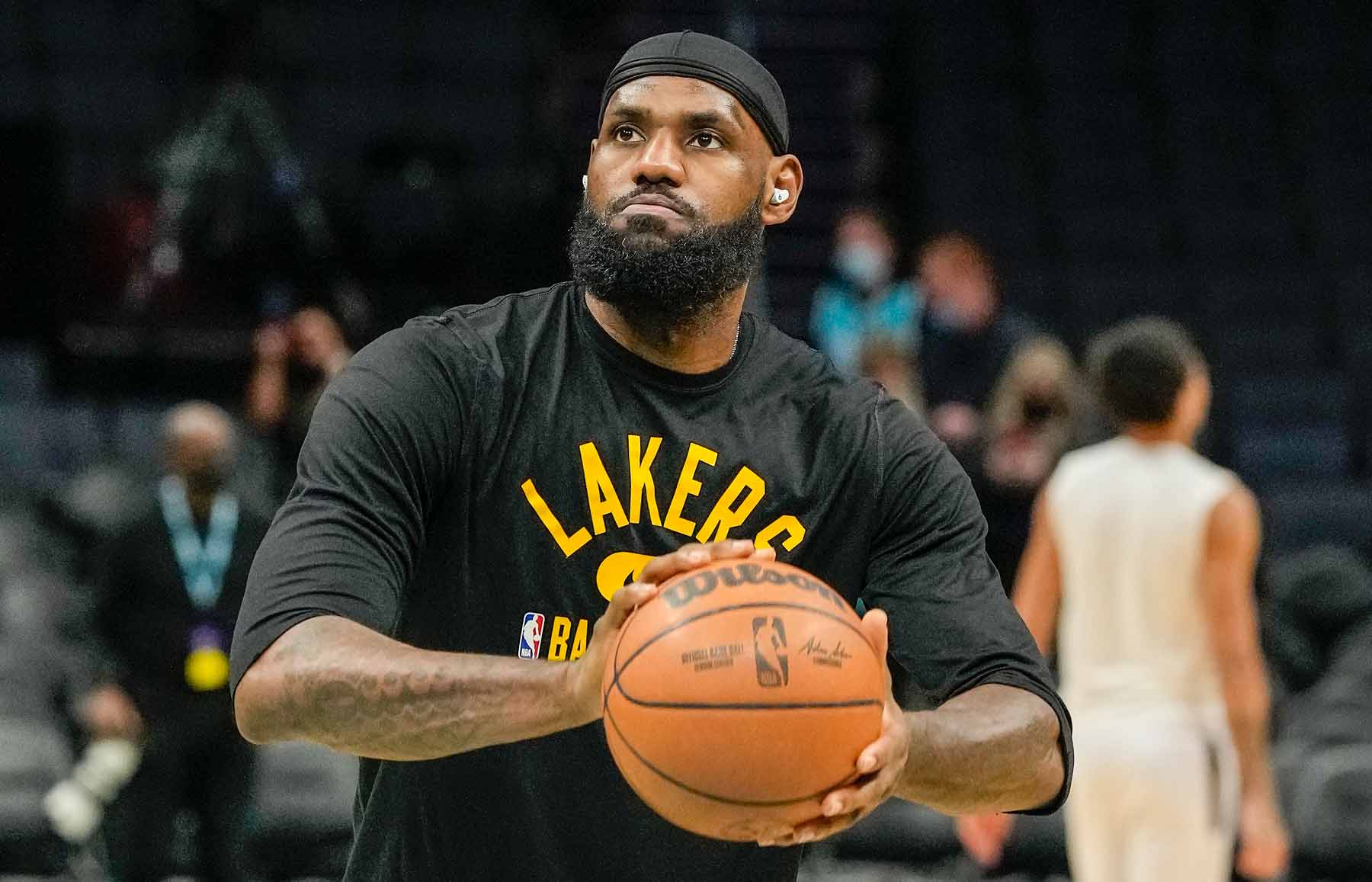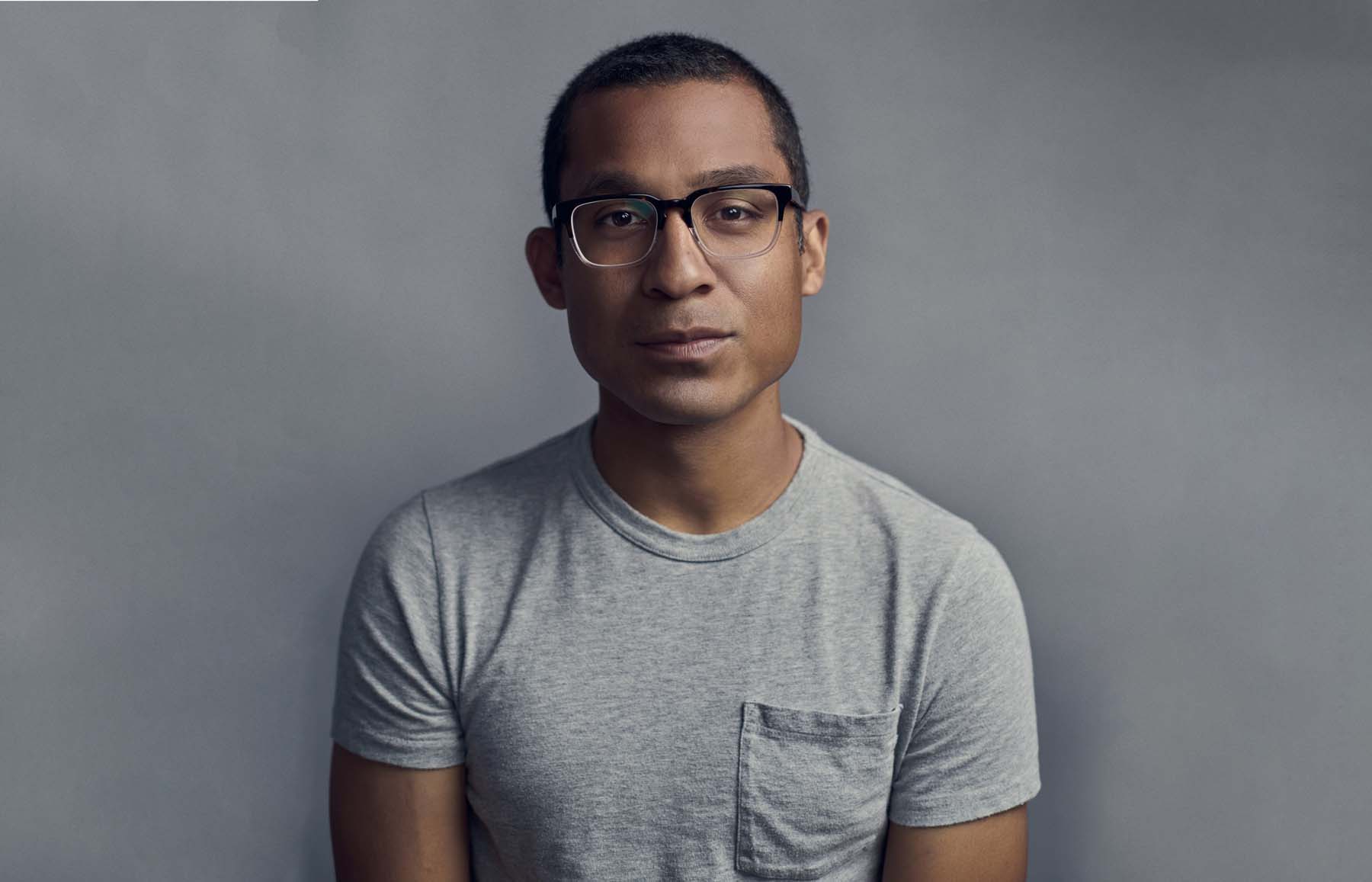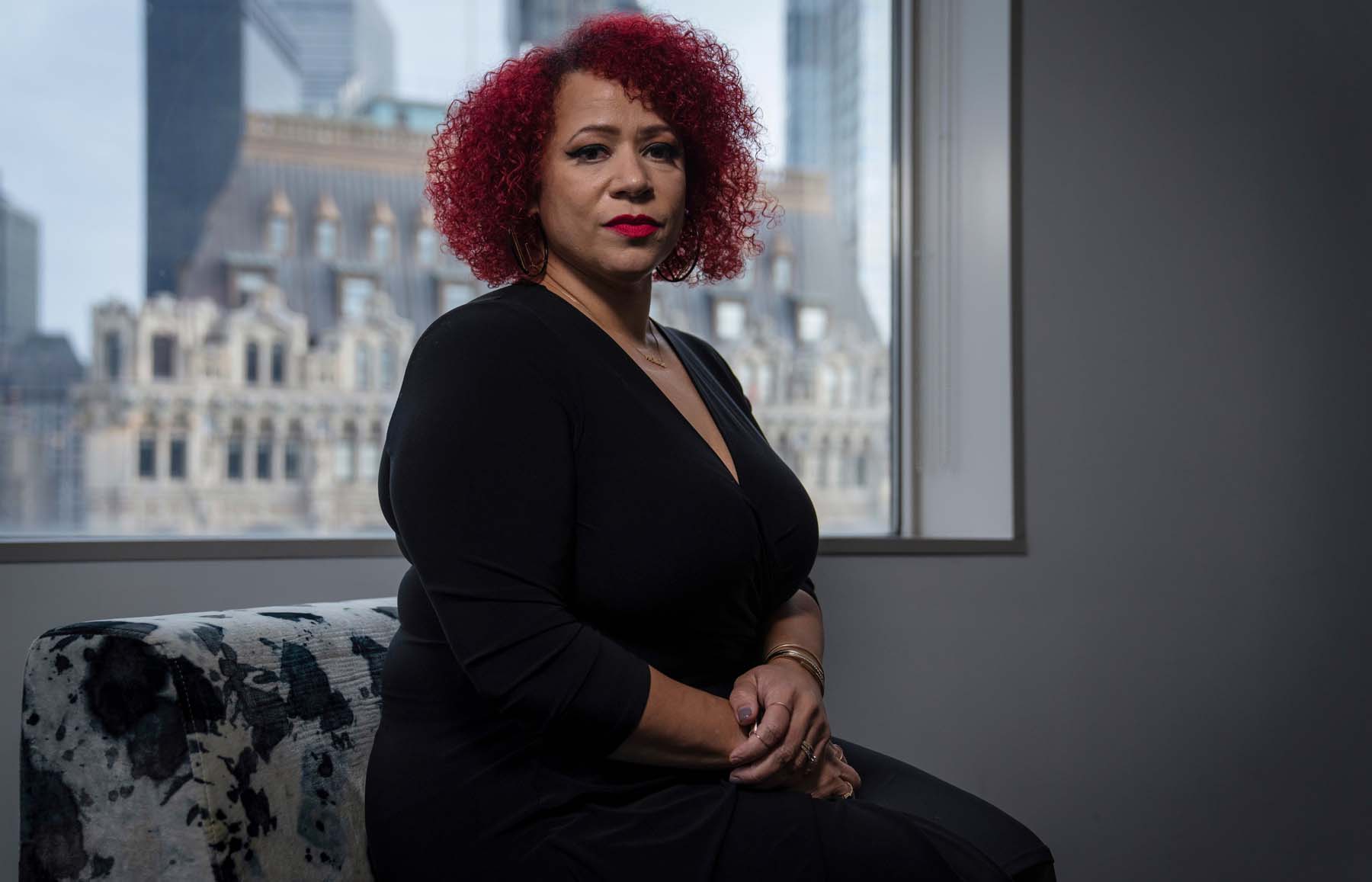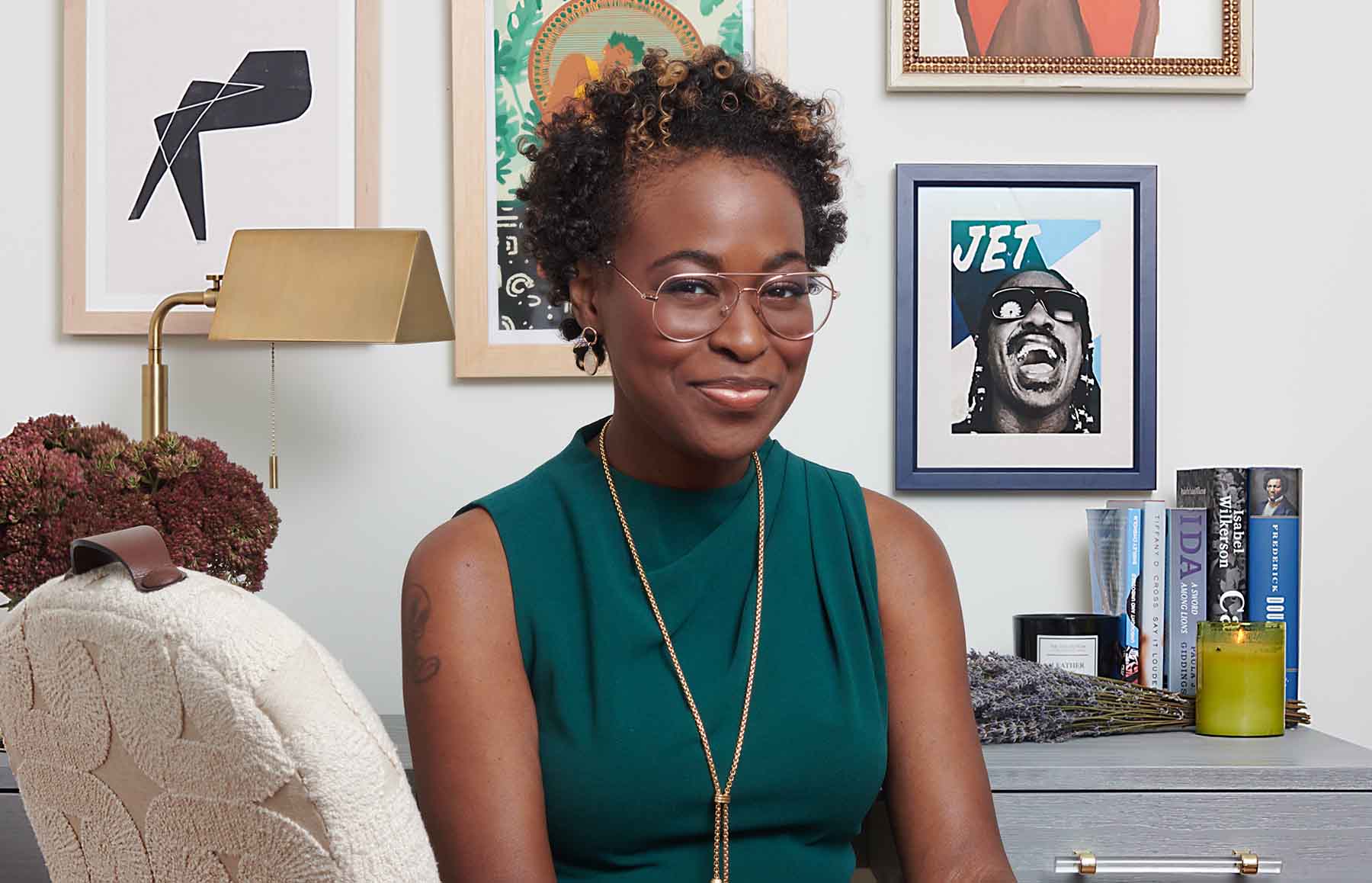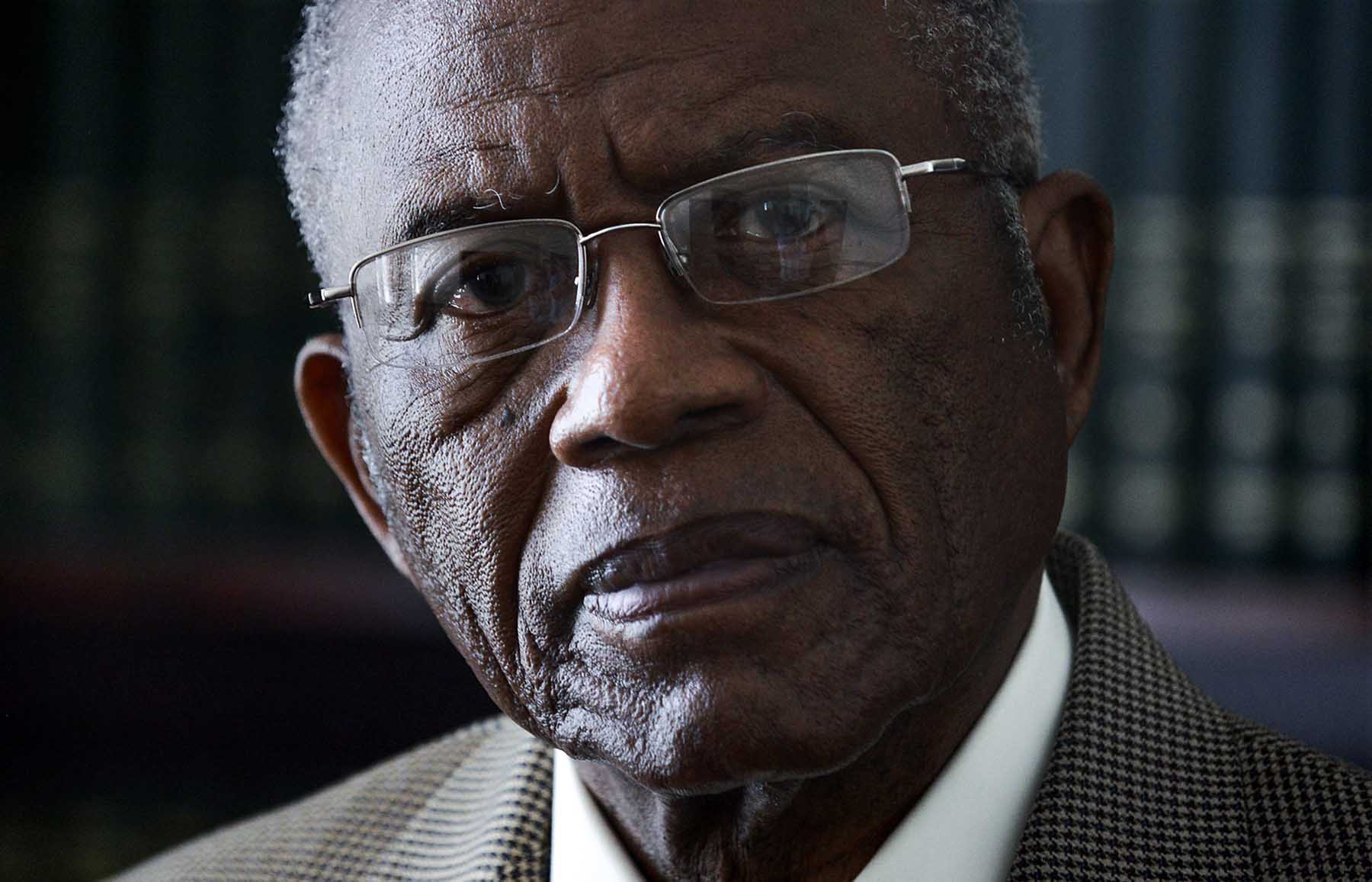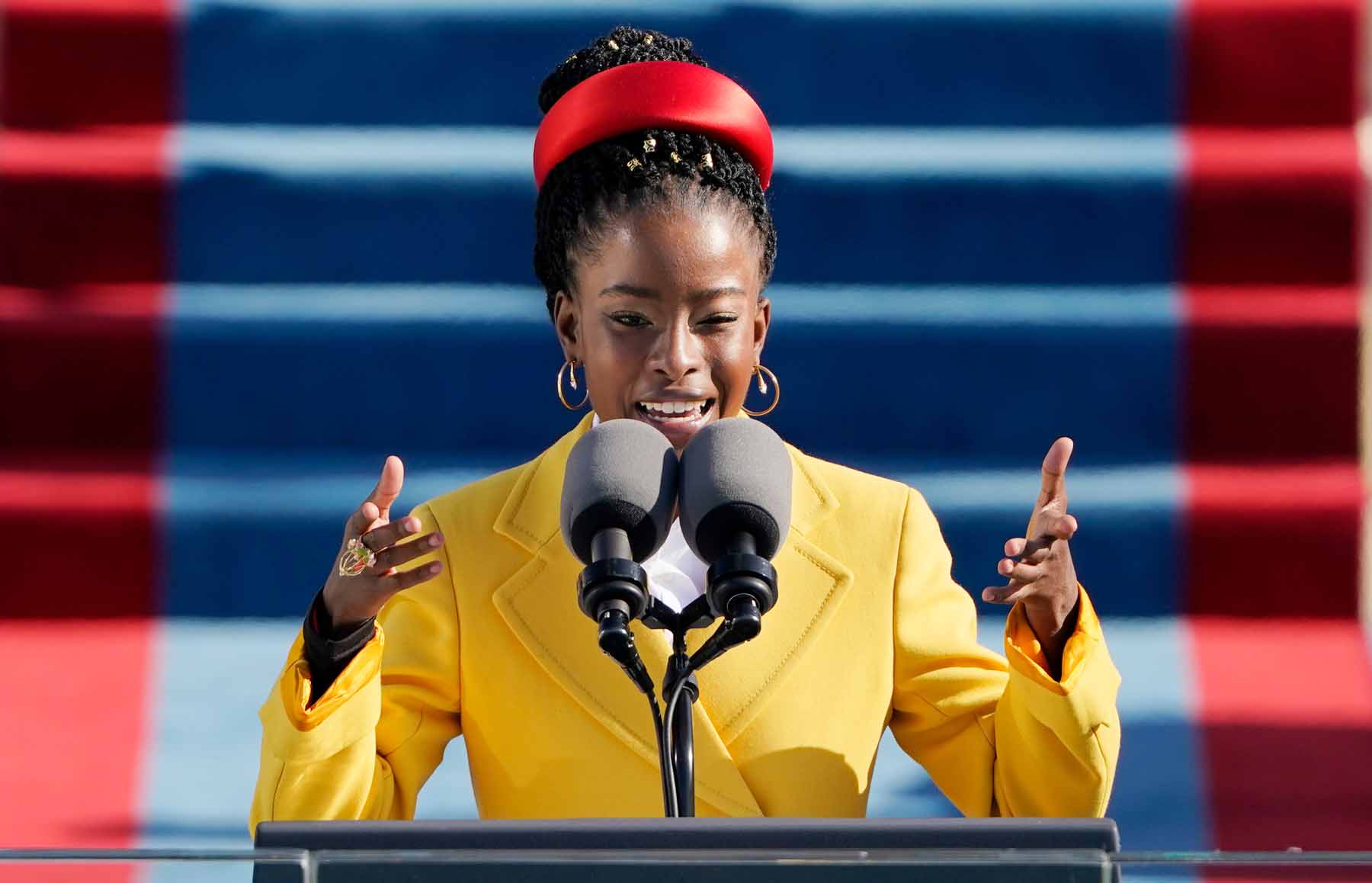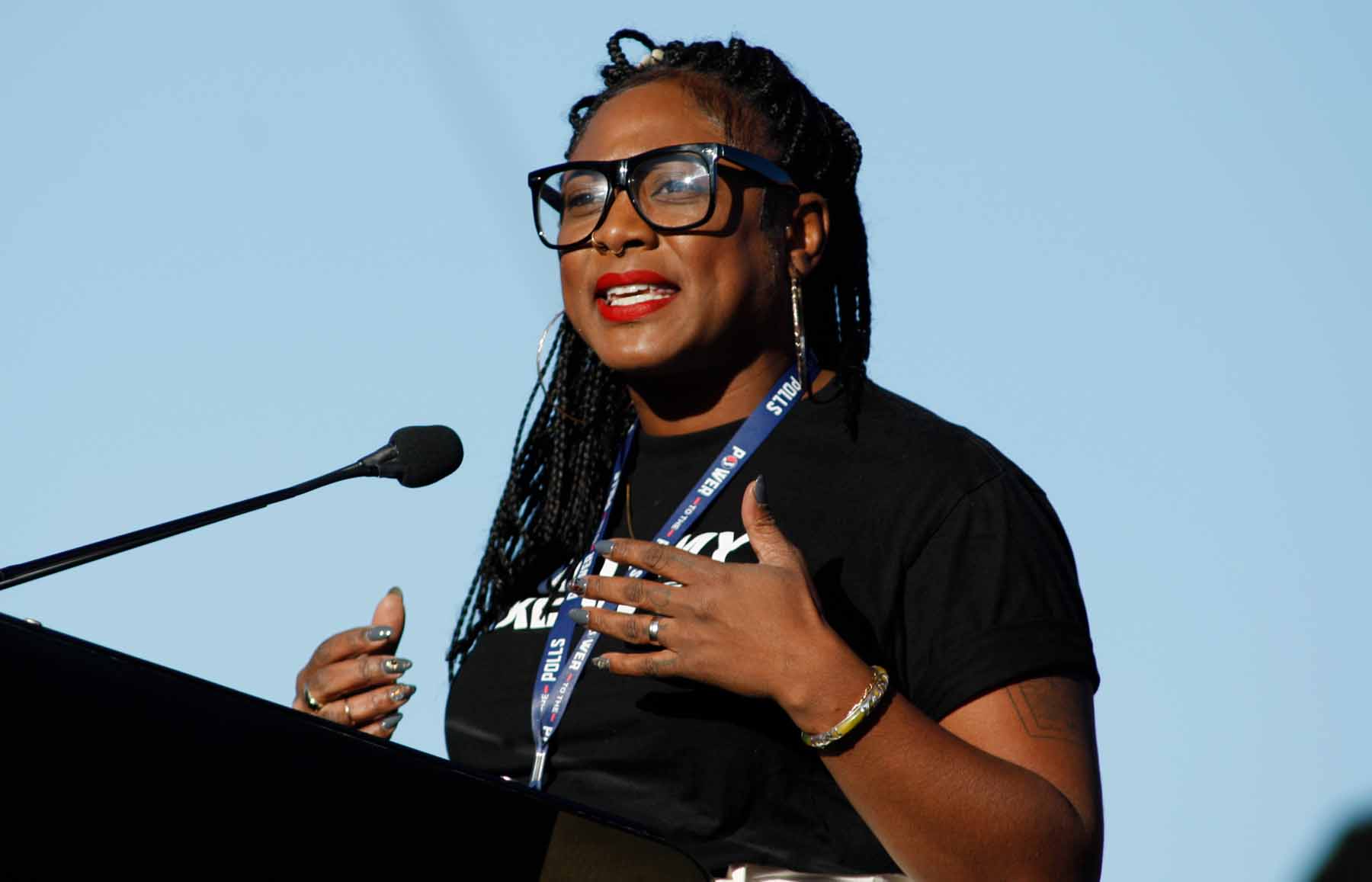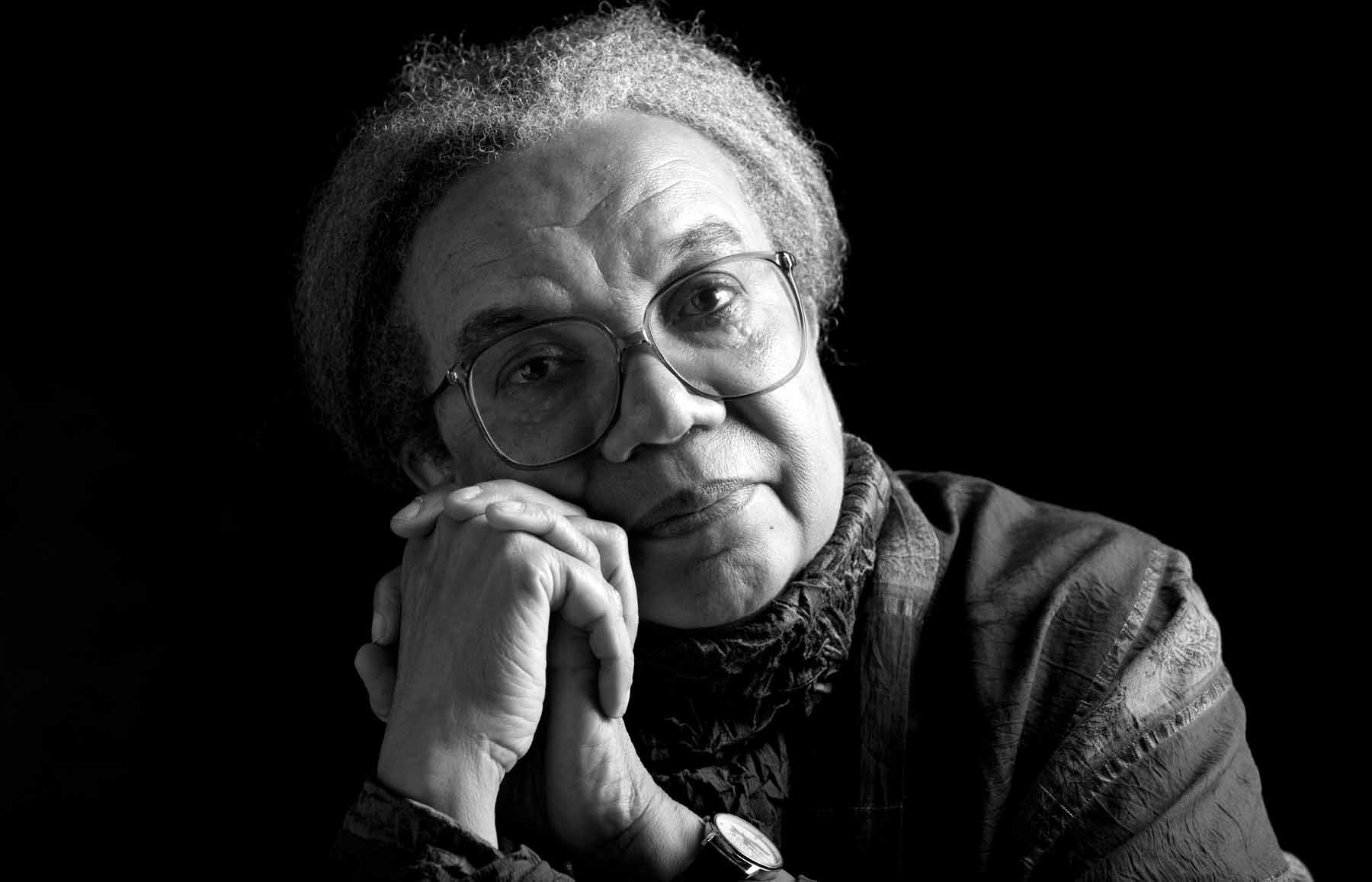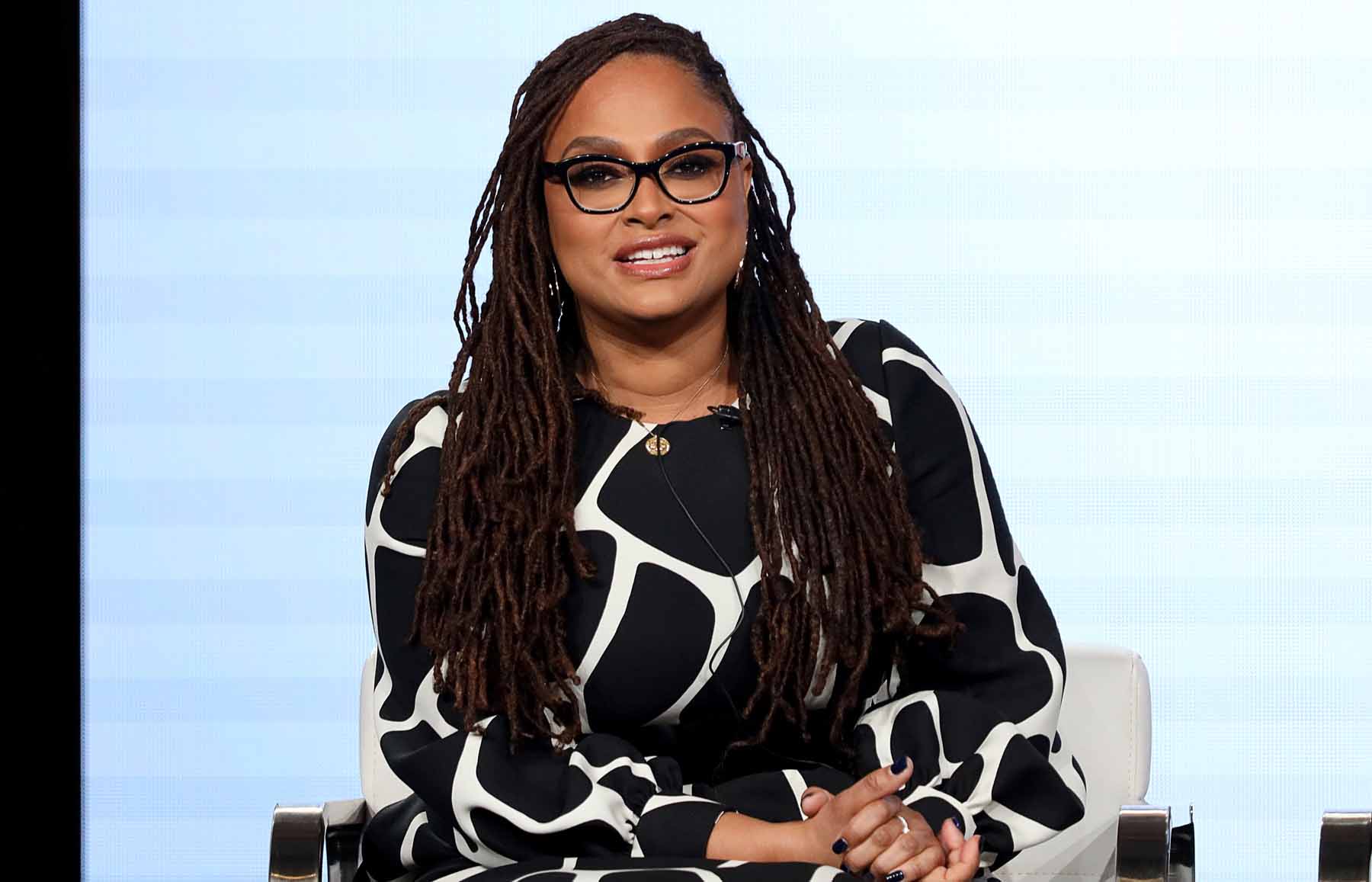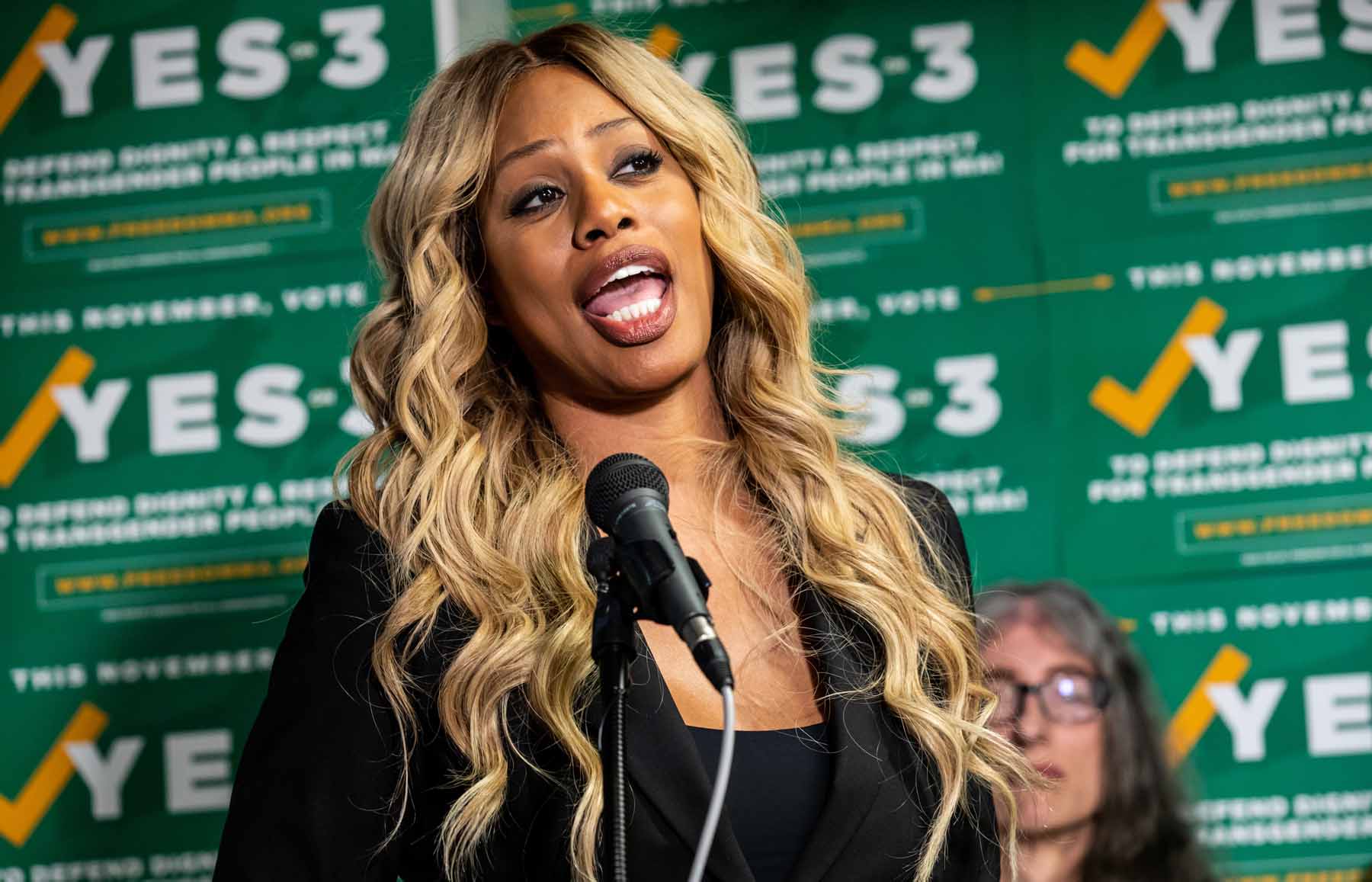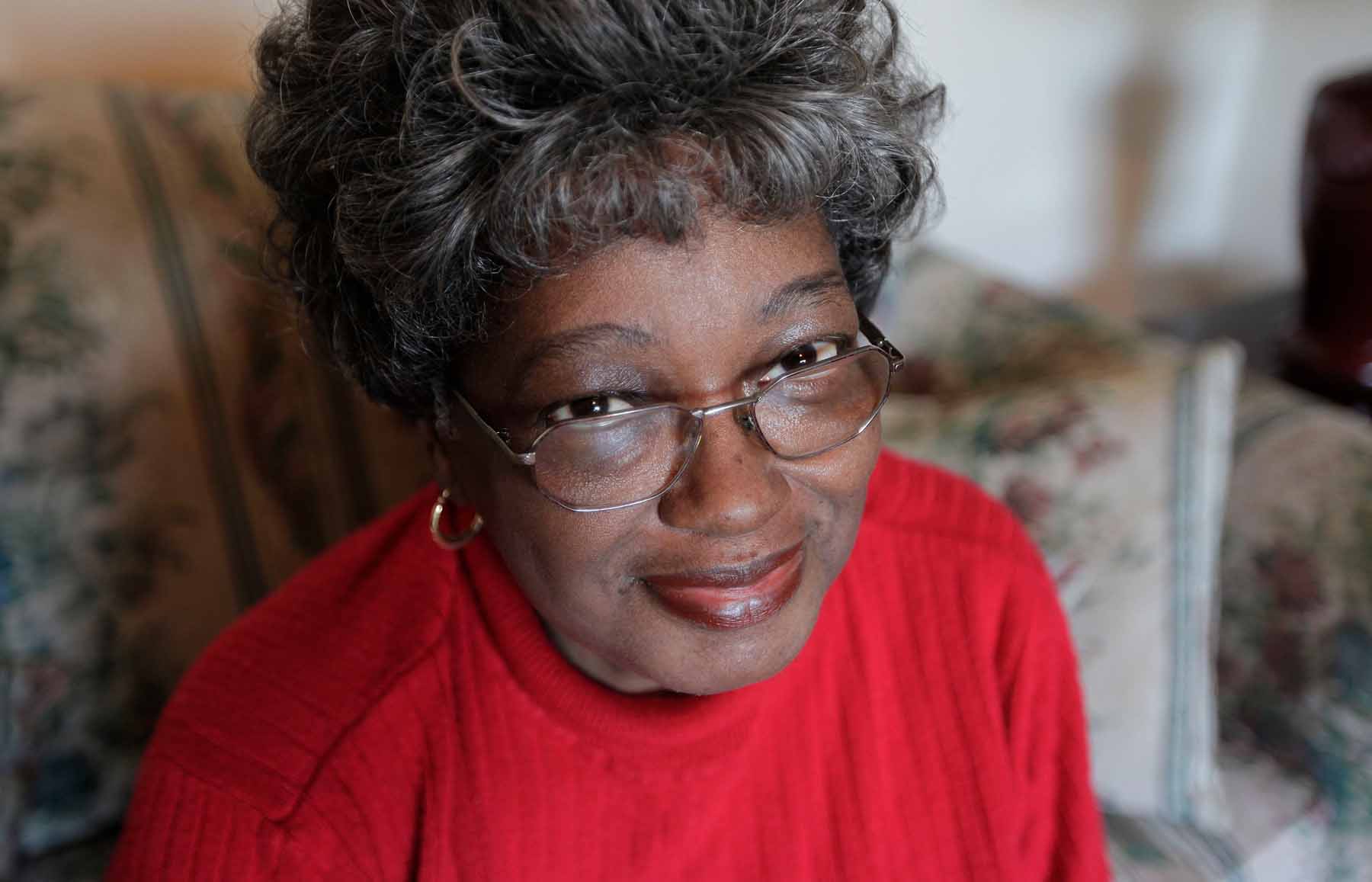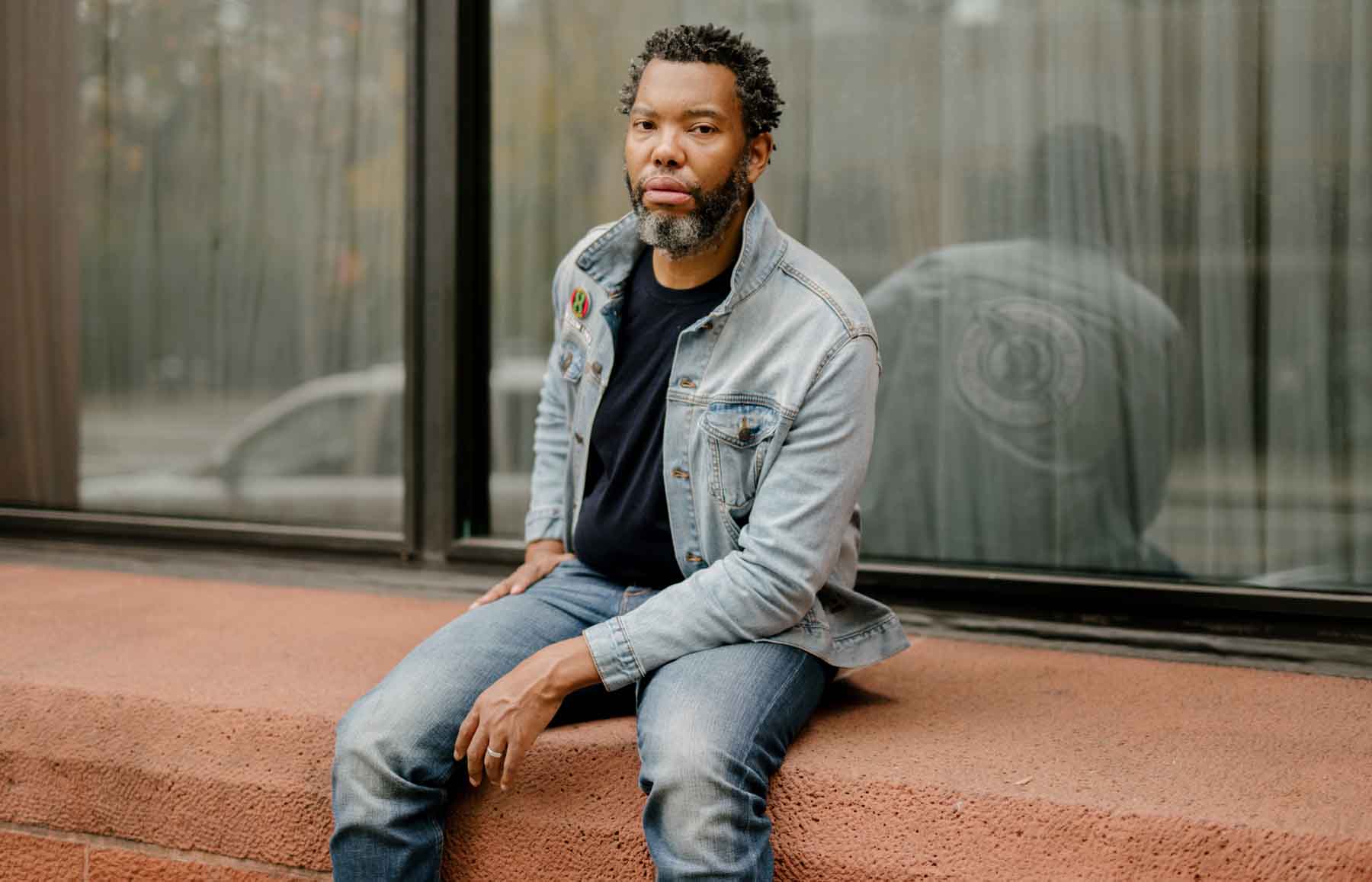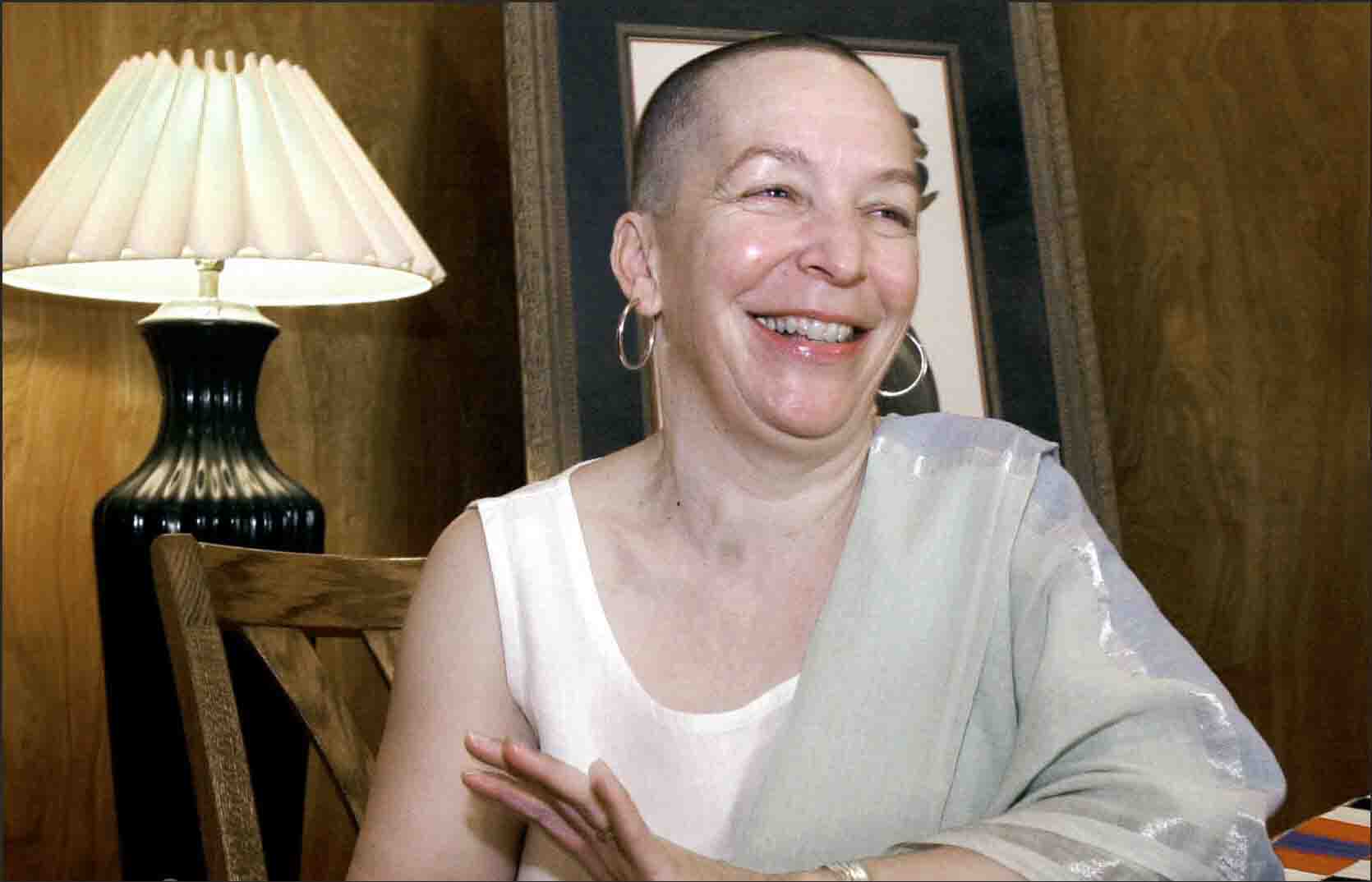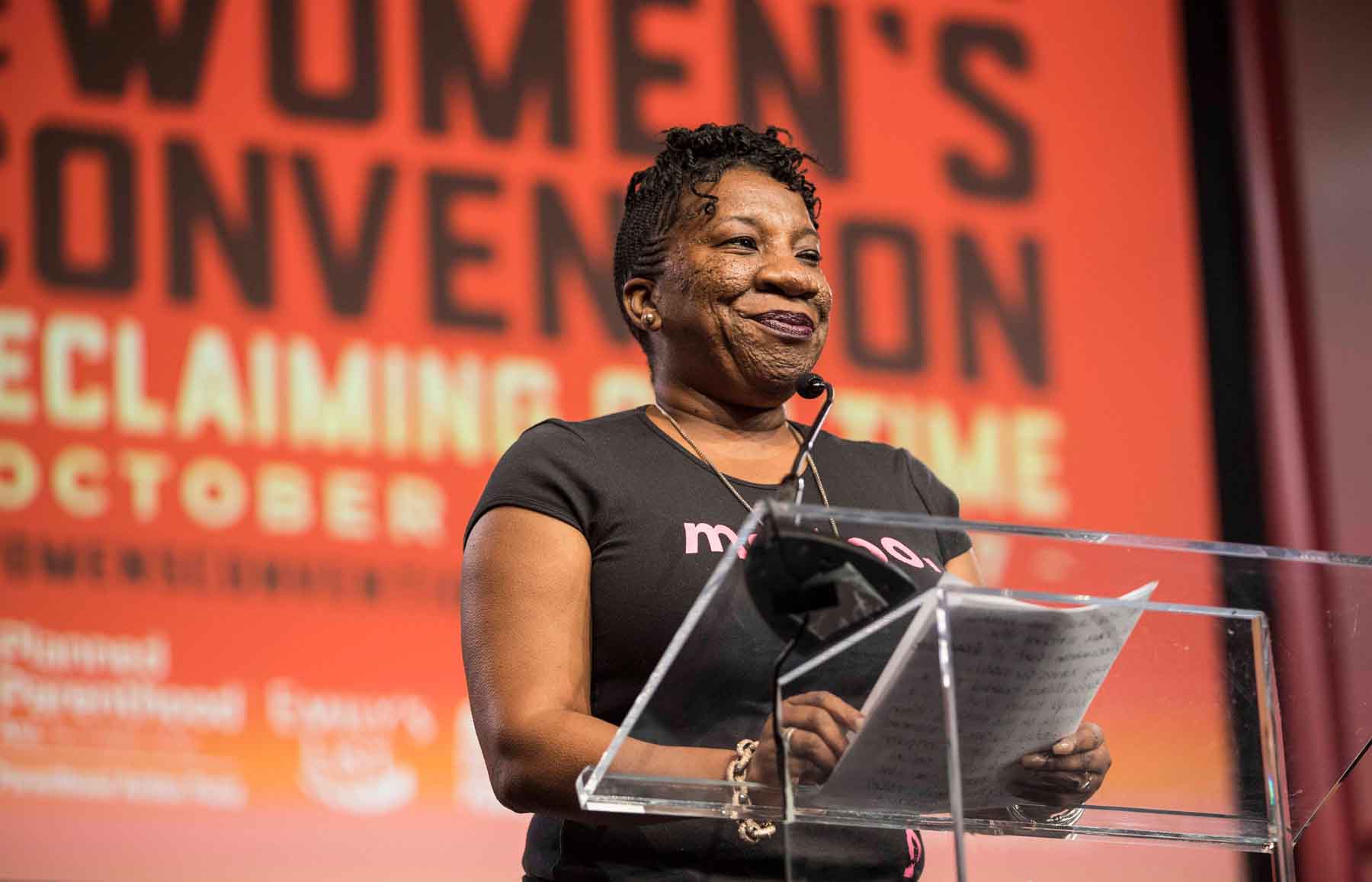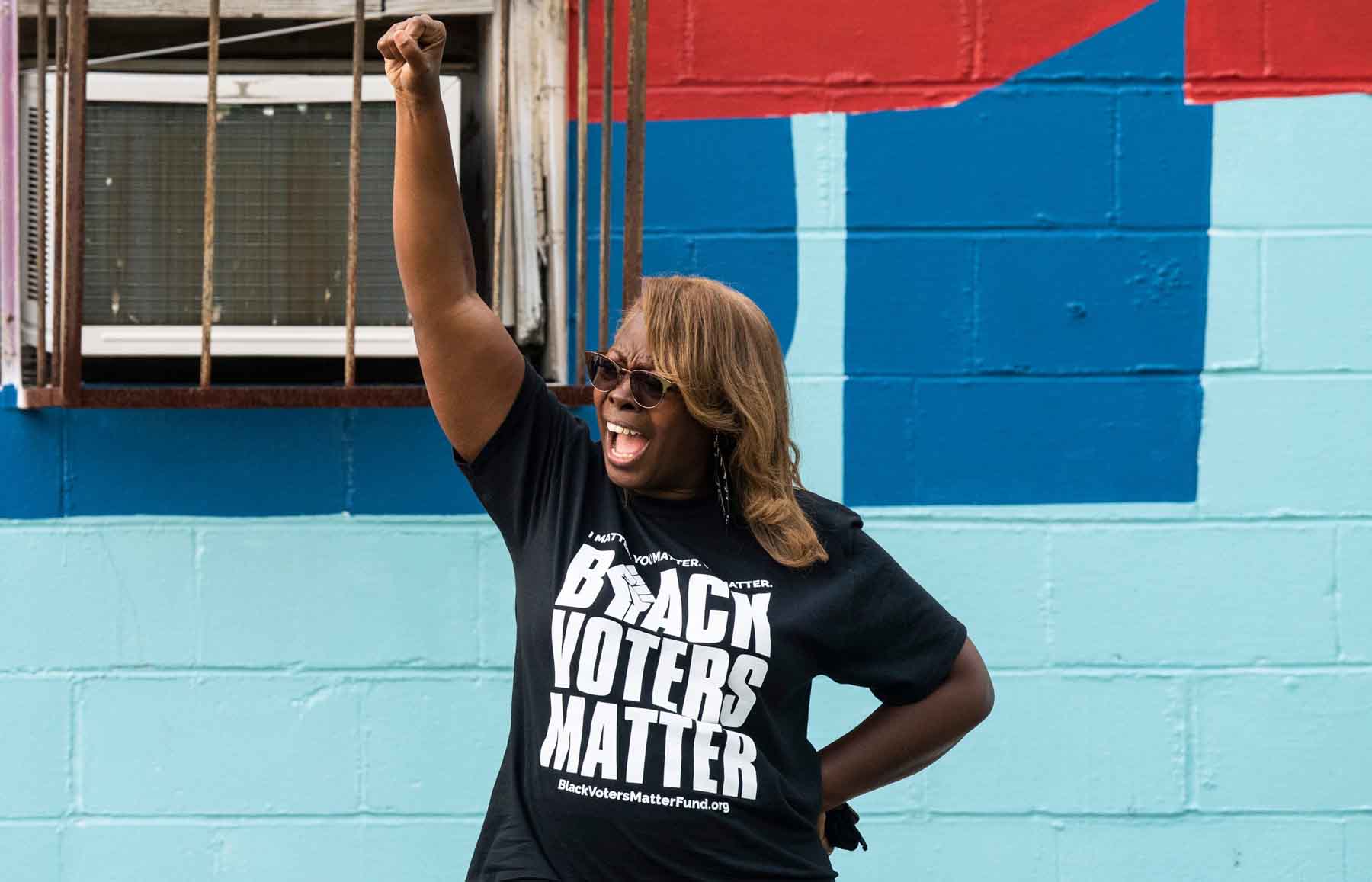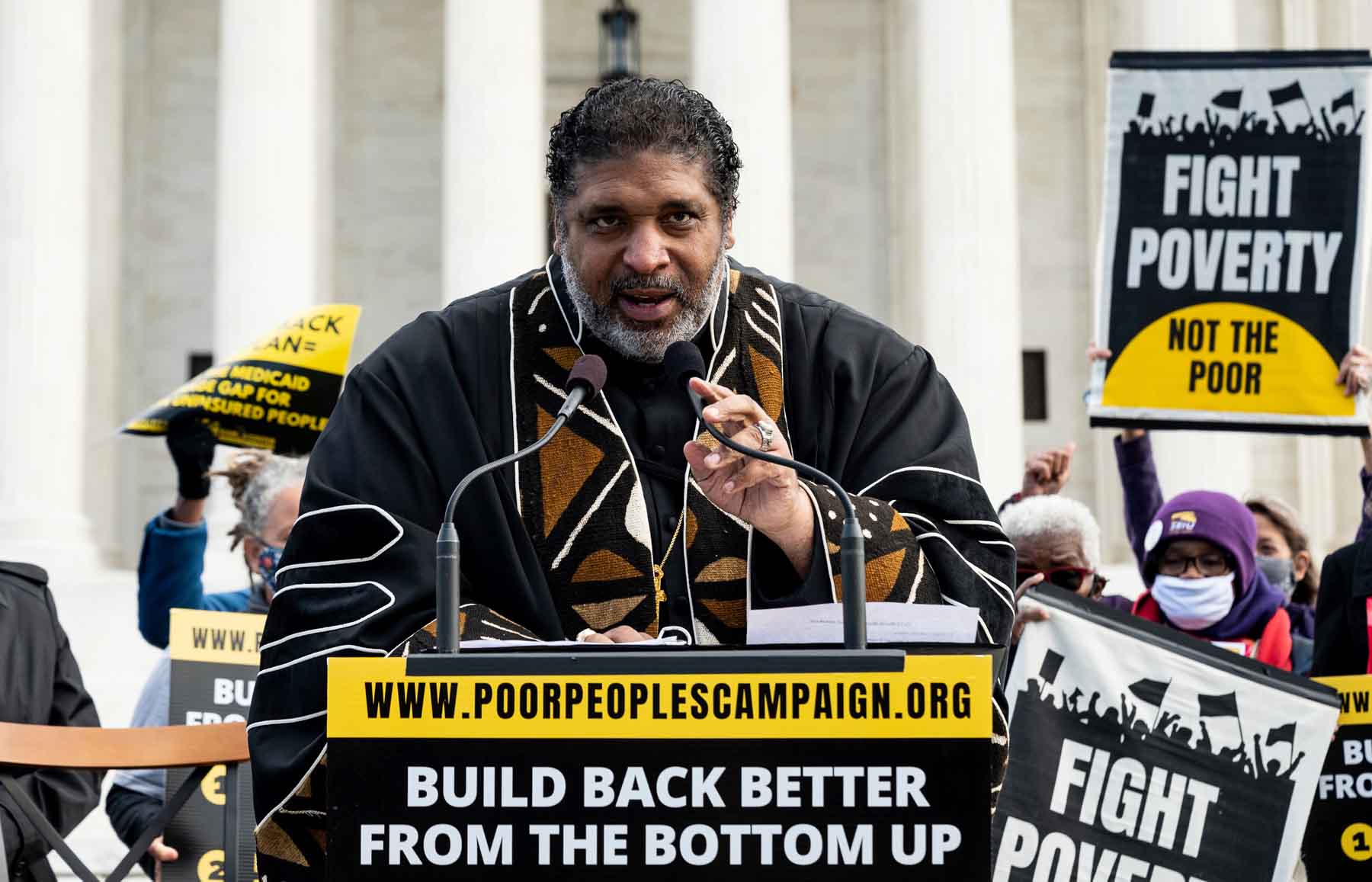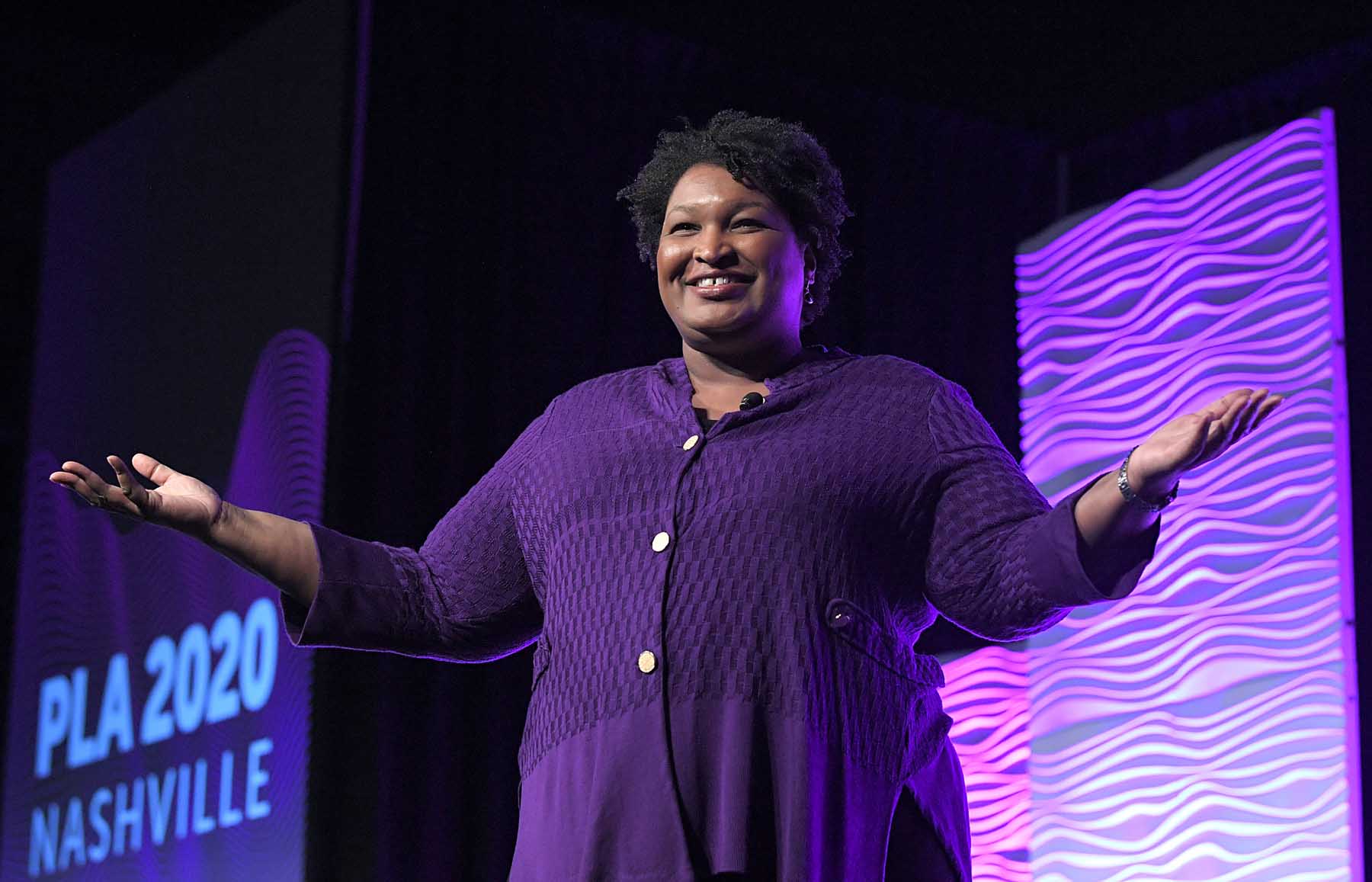Black History Month: Facts, people, quotes
For #BlackHistoryMonth 2022, the SPLC is highlighting those who are fighting hate, correcting the narrative, and making waves. We celebrate the liberation, the creativity, the resilience and intersecting identities of Black people. Week-by-week throughout February, we salute these modern-day history makers.
Stacey Abrams | The Rev. William Barber | Ruby Bridges | LaTosha Brown | Tarana Burke | Pearl Cleage | Ta-Nehisi Coates | Claudette Colvin | Laverne Cox | Ava DuVernay | Marian Wright Edelman | Ben Frazier | Alicia Garza | Amanda Gorman | Fred Gray | Errin Haines | Nikole Hannah-Jones | CJ Hunt | LeBron James | Mae Jemison | Colin Kaepernick | Bernice King | Ibram X. Kendi | Julianne Malveaux | Billy Porter | RuPaul | Bryan Stevenson | Isabel Wilkerson
Isabel Wilkerson
Isabel Wilkerson is a Pulitzer Prize winning journalist and writer. She won for narrative writing at The New York Times.
Her first book was “The Warmth of Other Suns,” about the Great Migration, when millions of Black American moved from the South. It won many awards.
Her second was “Caste: The Origin of Our Discontents.” In this book she describes the artificial system of oppression as caste, which has been an idea for thousands of years, rather than race. She says caste more accurately explains inequality.
An NPR review of the book says, “Wilkerson's central thesis is that caste, while a global occurrence, achieves its most violent manifestation in the treatment of American Blacks, set at the lowest level in society through historical and contemporary oppression, marginalization and violence — all legally maintained through systems of law and order.”
“Caste is insidious and therefore powerful because it is not hatred, it is not necessarily personal. It is the worn grooves of comforting routines and unthinking expectations, patterns of a social order that have been in place for so long that it looks like the natural order of things.”
― Isabel Wilkerson
Bryan Stevenson
Lawyer Bryan Stevenson has spent most of his life working for justice.
In 1989, he created the Equal Justice Initiative, a nonprofit offering legal representation to defendants and incarcerated people who have been denied equal or fair justice. The group has helped more than 135 people who were wrongly sentenced to death.
Stevenson has argued before the Supreme Court many times. In 2019, he won a case that protected incarcerated people who had dementia. In 2012, he argued for a ruling that ended mandatory life without parole for those 17 and younger.
In 2018, the initiative opened The Legacy Museum, which tells the story of enslaved Africans through mass incarceration. It’s on the Montgomery, Alabama, site not far from where tens of thousands of enslaved people were sold at auction.
He also wrote “Just Mercy: A Story of Justice and Redemption,” which won numerous awards and was made into a 2019 film starring Michael B. Jordan and Jamie Foxx.
Stevenson now teaches law at New York University School of Law.
“Many states can no longer afford to support public education, public benefits, public services without doing something about the exorbitant costs that mass incarceration have created.”
― Bryan Stevenson
RuPaul
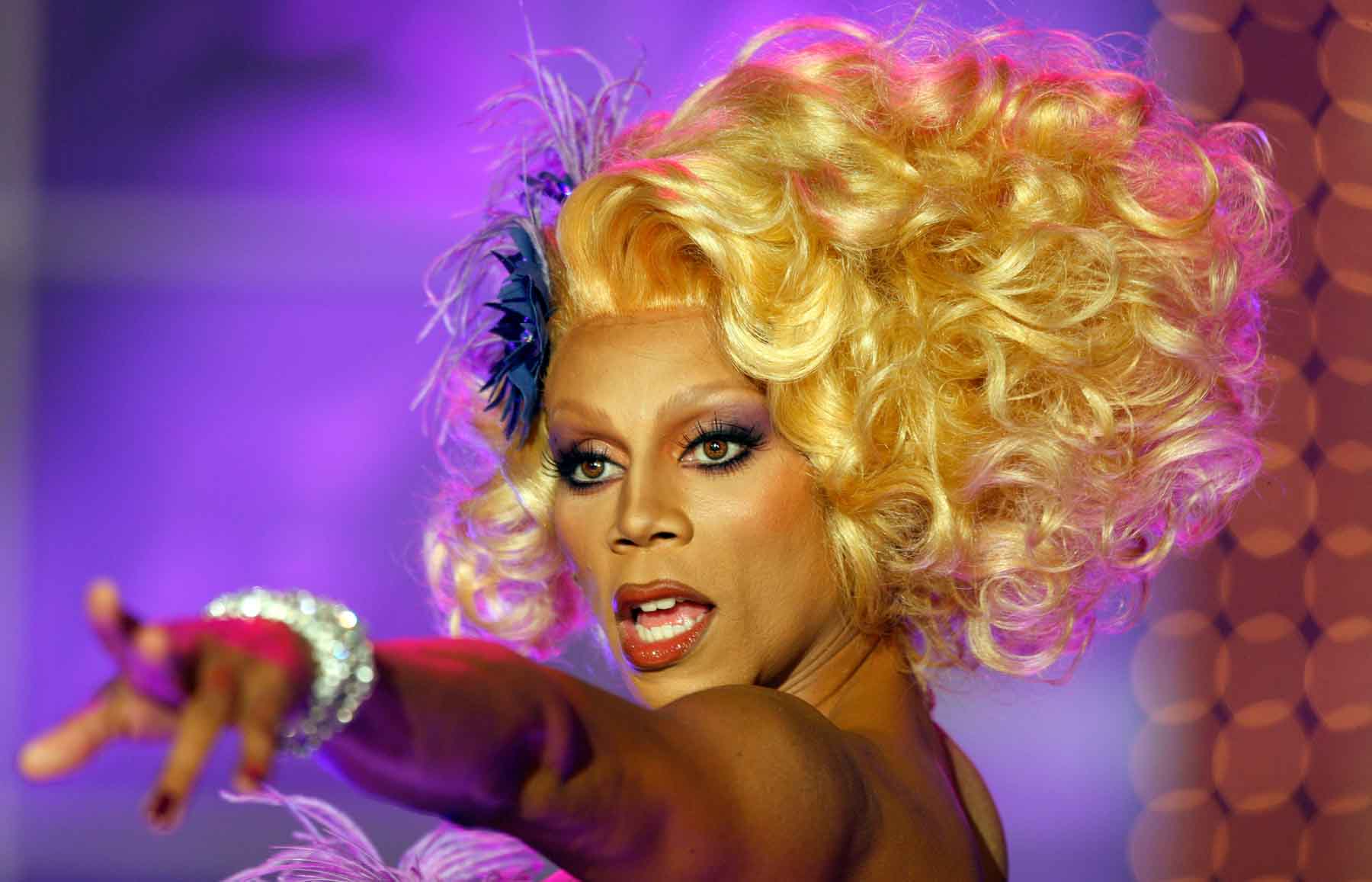
RuPaul is among the most famous drag performers in the world. He has recorded dance music albums, been a model for a cosmetics company, hosted a talk show on VH1 and acted in TV shows and movies.
For more than a decade, he has been the producer, host and judge of “RuPaul’s Drag Race.” Competitors on the reality show want to become drag stars. RuPaul has won 11 Primetime Emmy Awards for the show, the most of any person of color.
A BBC article says the show has “become one of the defining series of our age, helping to make drag a mainstream artform like never before.” The show has also expanded to Canada and the United Kingdom.
“I have been discriminated against by white people for being Black, by Black people for being gay, by gay people for being too fem. Did I let them stop me from getting to this chair?”
― RuPaul
Billy Porter
Billy Porter was already an award-winning Broadway actor when he performed the role of Lola in “Kinky Boots” on Broadway. For that play, he won a 2013 Tony Award for lead actor.
He says he uses art as activism. His eye-catching, memorable red-carpet outfits are part of his mission to popularize gender-neutral fashion.
For the TV show “Pose,” Porter won a 2019 Primetime Emmy for lead actor, making him the first openly Black man to win in that category.
His memoir “Unprotected” is about growing up Black and gay in a religious home. He writes that when he was 5, he was put into therapy to “cure” his effeminacy. And he was treated like an outcast at school and at his church.
“Just by the nature of making the choice to be true to who I am, I'm political. Sometimes that's all you need to do: Show up and be Black, gay and Christian in America and actually say it out loud. And refuse to let anything or anybody take that away from you.”
― Billy Porter
Julianne Malveaux
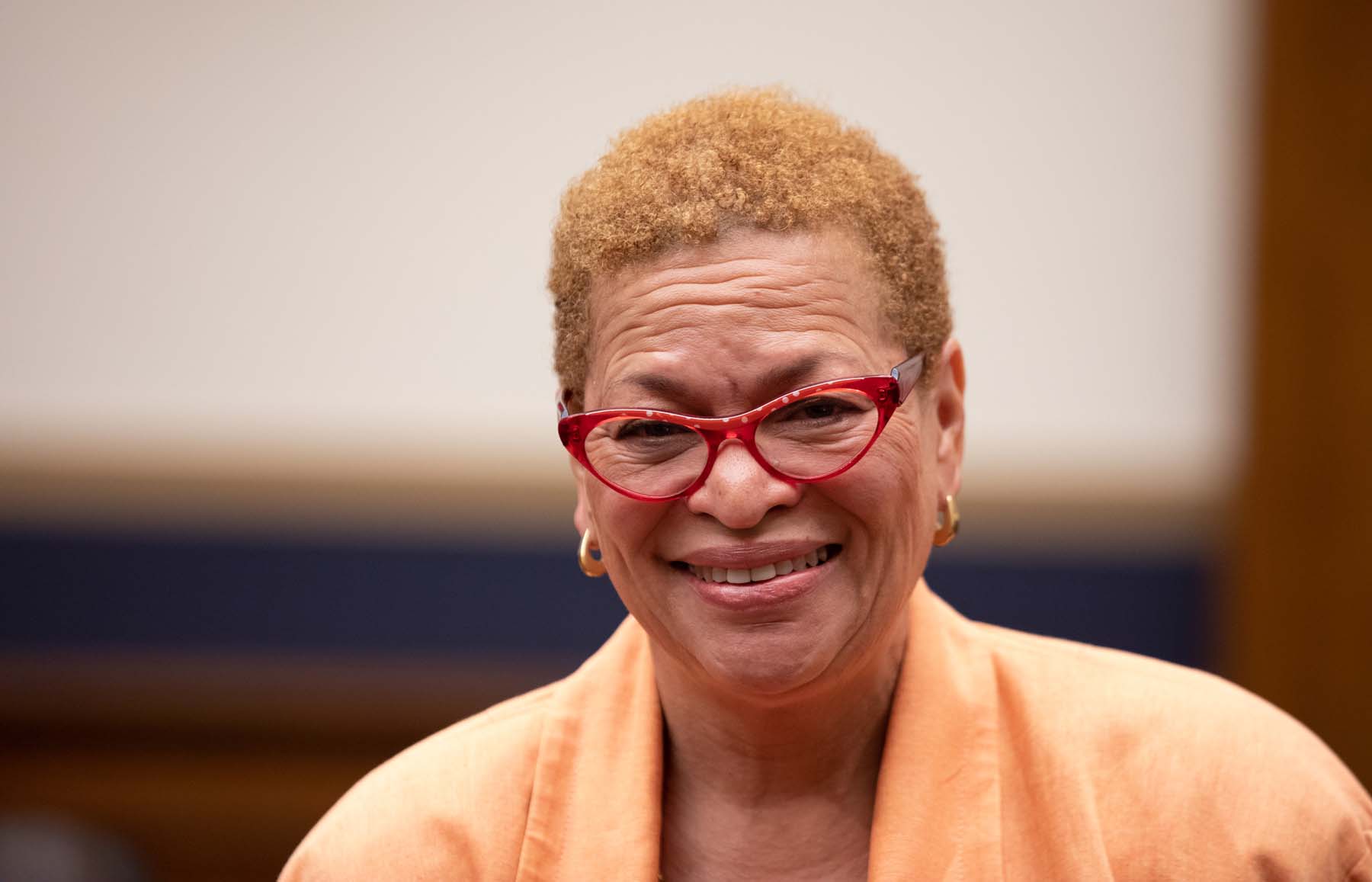
Economist Julianne Malveaux writes and lectures on ways that labor and public policy affect women and people of color.
Philosopher Cornel West has called Malveaux “the most iconoclastic public intellectual in the country.”
For five years, she was president of Bennett College, a historically Black college for women in North Carolina.
Her syndicated column has appeared in numerous publications across the country. She also appears often on cable news programs.
“When public policy is directed toward urban spaces, it is directed toward people who sit at the margins.”
― Julianne Malveaux
Ibram X. Kendi
When Ibram X. Kendi was only 38, Time magazine included him in its 2020 list of the 100 most influential people in the world.
He’s a historian of racism and has written two books that have been on The New York Times bestseller list, “How to Be an Antiracist” and “Stamped from the Beginning: The Definitive History of Racist Ideas in America.” The latter won the National Book Award for Nonfiction in 2016.
He is the founding director at Boston University’s Center for Antiracist Research.
The Rev. Al Sharpton described Kendi’s work in Time’s 2020 list: “[Kendi] provides concrete and actionable steps and recommendations that we can all take to wipe out the vestiges of racism and bigotry and strive to be — to use the term Kendi popularized in 2019 — antiracist.
“Time and again, racist ideas have not been cooked up from the boiling pot of ignorance and hate. Time and again, powerful and brilliant men and women have produced racist ideas in order to justify the racist policies of their era, in order to redirect the blame for their era’s racial disparities away from those policies and onto Black people.”
― Ibram X. Kendi
Bernice King
Bernice King is the youngest child of Martin Luther King Jr. and Coretta Scott King. Bernice King had just turned 5 when her father was assassinated.
She is a minister and a lawyer.
And she’s now CEO of the Martin Luther King Jr. Center for Nonviolent Social Change.
Read more about her life and her goals.
“Like my father, I believe that nonviolence is the antidote to what he called 'the triple evils of racism, poverty and militarism.' These three evils were consuming our hopes for community in 1964, and, 50 years later, we remain divided because of their festering effects.”
― Bernice King
Colin Kaepernick
In 2016, San Francisco 49er quarterback Colin Kaepernick kneeled during the national anthem. He did so to call attention to police brutality against people of color. Many fans supported him, but many attacked him.
Kaepernick played his last NFL game that season. He settled a grievance with the NFL in 2019 in which he accused league owners of colluding to keep him out of the league.
A 2020 report, Shut Up and Play: Black Athletes, Protest Politics, and Black Political Action, showed the power of Kaepernick’s act. His stand inspired a third of Black people surveyed to give to a political cause, join a protest or stop watching NFL games. He also inspired half of the people in the survey to vote.
Kaepernick also started the Know Your Rights Camp. Its website says, “Our mission is to advance the liberation and well-being of Black and Brown communities through education, self-empowerment, mass mobilization and the creation of new systems that elevate the next generation of change leaders.”
“I am not going to stand up to show pride in a flag for a country that oppresses Black people and people of color.”
― Colin Kaepernick
Mae Jemison
Mae Jemison was the first Black U.S. woman to become an astronaut.
Along the way, she earned degrees at Stanford in chemical engineering and African American studies, she went to medical school, became a doctor, and worked as a medical officer in the Peace Corps in Africa.
After joining NASA in 1987, she was a mission specialist on the Endeavor space shuttle. The crew spent eight days orbiting Earth in September 1992.
“When I’m asked about the relevance to Black people of what I do, I take that as an affront. It presupposes that Black people have never been involved in exploring the heavens, but this is not so. Ancient African empires — Mali, Songhai, Egypt — had scientists, astronomers. The fact is that space and its resources belong to all of us, not to any one group.”
― Mae Jemison
LeBron James
NBA superstar LeBron James is busy with activism off the court.
He started More Than A Vote soon after the police killings of George Floyd and Breonna Taylor to educate and inspire Black voters.
Beyond adding cash to causes, he urges his teammates to stand up. He and members of the Miami Heat posed wearing hoodies after the killing of Trayvon Martin in 2012.
He and other Cleveland Cavaliers wore “I Can’t Breathe” T-shirts after New York police killed Eric Garner in 2015.
In addition, James has:
- Donated millions in his hometown of Akron, Ohio.
- Paid tuition for students to attend the University of Akron.
- Opened the I Promise school to focus on at-risk children.
- Through his foundation, helped parents get their GEDs.
He also finances documentaries such as “Rise Up: The Movement That Changed America,” about the civil rights movement.
“We have a responsibility to not let these kids down, to continue to be the teachers, the mentors, the parents, the coaching, the life skills, the superheroes. …Whatever it is that gives the inspiration, everything, that’s our responsibility.”
― LeBron James
CJ Hunt
Comedian CJ Hunt was living in New Orleans when he first noticed the number of Confederate monument that were the centerpieces of public spaces. These places were meant for people of all colors, yet memorials to people who fought for slavery and glorified white supremacy were honored in those spaces.
The result was his first documentary, “The Neutral Ground.” The film tries to learn why so many Southerners continue to revere Confederate figures and believe the false narrative of the “Lost Cause.”
“How do you learn about slavery without feeling uncomfortable? I don’t care what color your skin is. It’s literally the most uncomfortable thing that has ever happened. Education requires discomfort, a test or a challenge.”
― CJ Hunt
Nikole Hannah-Jones
At The New York Times, Nikole Hannah-Jones was the editor overseeing “The 1619 Project,” which told the start of the story of our nation through the eyes of enslaved Africans.
One goal was to reverse the erasure of Black people in U.S. history. The project became a fire starter in the national debate on critical race theory, which also aims to understand history through the study of race relations. Numerous GOP lawmakers sought to quash both The Times project and teaching of critical race theory.
Hannah-Jones won the 2020 Pulitzer Prize for Commentary for her essay introducing “The 1619 Project.”
In 2021, Hannah-Jones was offered a professorship at University of North Carolina — Chapel Hill. At first the board of trustees denied her tenure. After complaints from the UNC community, that decision was reversed. Still, instead, Hannah-Jones took a teaching job at Howard University, a historically Black institution.
“Our myths have not served us well. We are the most unequal of the Western democracies. We incarcerate our citizens at the highest rates. We suffer the greatest income inequality. Americans’ life spans are shorter than those of the people in the nations we compare ourselves to.”
― Nikole Hannah-Jones
Errin Haines
Award-winning journalist Errin Haines is editor-at-large and a founding member of The 19th, a nonprofit newsroom that centers on gender and politics but touches on nearly every aspect of life.
While working for The Associated Press, The Washington Post and more, she focused on race and politics.
She has taught at Princeton and Georgetown universities.
“Black women, when they show up at the polls, they don’t just show up, they show out. This is the reason that they are such a valuable part of our politics.”
— Errin Haines
Fred Gray
Fred Gray stands tall among civil rights lawyers.
Over the decades, he defended Rosa Parks for refusing to give up her seat on a Montgomery, Alabama, bus and was lead counsel on Browder v. Gayle, which desegregated Alabama buses. He also helped the men who were unknowingly part of the Tuskegee syphilis study get a $9 million settlement. He fought to defeat redistricting in Tuskegee that disenfranchised Black residents. Martin Luther King Jr. called him “the chief counsel for the protest movement.”
He was elected to the Alabama State Legislature in 1970, becoming one of the two Black officials to serve in the body since Reconstruction.
"If we are to survive as a people, we must slay bigotry, corruption, inner turmoil and conflict. We must work toward the fulfillment of true democracy and the preservation of freedom, justice and equality for all.”
― Fred Gray
Amanda Gorman
Amanda Gorman was the first National Youth Poet Laureate. She gained nationwide attention when she read “The Hill We Climb” at President Joe Biden’s inauguration.
The poem spoke of the nation’s divisiveness, particularly vivid just weeks after the Jan. 6 insurrection. But it also offered a vision of hope and unity ending with:
“There is always light,
If only we’re brave enough to see it,
If only we’re brave enough to be it.”
As Los Angeles’ first Youth Poet Laureate, she worked to develop youth programs. She works with her twin sister, Gabrielle, on projects such as “Rise Up As One,” a film about activism.
“Poetry and language are often at the heartbeat of movements for change.”
― Amanda Gorman
Alicia Garza
Alicia Garza is one co-creator of Black Lives Matter. She first used the #blacklivesmatter hashtag on social media, reacting to the acquittal of the man who killed Trayvon Martin.
Her book “The Purpose of Power: How We Come Together When We Fall Apart” describes her path to creating a movement. She stresses that a hashtag is strong, but it’s not all. “Hashtags don’t build movements. People do.”
Garza works to change the living conditions of marginalized people in the U.S. She writes that listening to people is essential to any fight. She works within organizations such as Black Futures Lab to build Black political power.
She also spotlights reproductive health disparities, police brutality, pay inequity and violence against gender-nonconforming people.
“Change does not occur without backlash — at least any change worth having — and that backlash is an indicator that the change is so powerful that the opposing forces resist that change with everything they have.”
― Alicia Garza
Ben Frazier
Ben Frazier is a longtime journalist and activist in Jacksonville, Fla. As a child, he joined civil rights demonstrations with his mother.
He is founder and president of the Northside Coalition of Jacksonville.
The coalition, guided by methods of nonviolence, works to end gun violence, train people for jobs and revitalize neighborhoods. The coalition also works to remove Confederate monuments and rename schools that honor Confederates.
"Common sense says we should remove monuments of racial hatred from public property."
― Ben Frazier
Marian Wright Edelman
Marian Wright Edelman founded the Children’s Defense Fund, which advocates for federal and state policies to make children’s lives better.
She was director of the NAACP Legal Defense and Education Fund office in Jackson, Mississippi. At that time, she was the first Black woman admitted to the Mississippi State Bar.
In her time at the Children’s Defense Fund, Edelman focused on ways to lower teen pregnancy, get more Medicaid funding for poor children, and assure money for Head Start.
She was awarded the Presidential Medal of Freedom in 2000.
Her book “The Measure of Our Success: A Letter to My Children and Yours” was No. 1 on The New York Times Best Sellers list.
“Education is for improving the lives of others and for leaving your community and world better than you found it.”
― Marian Wright Edelman
Ava DuVernay
Ava DuVernay has directed a number of films, including “Selma,” about the 1965 voting right marches from Selma, Alabama, to Montgomery, Alabama. Her documentary “13th” explores the disproportionate number of Black people in U.S. prisons.
She wrote and directed the limited series “When They See Us,” about the five Harlem teens wrongly accused in a Central Park rape.
She formed the company ARRAY to help people of color make films.
“There's something very important about films about Black women and girls being made by Black women. It's a reflection as opposed to an interpretation.”
― Ava DuVernay
Laverne Cox
Actress Laverne Cox was the first openly transgender person to be nominated for an Emmy for her role in “Orange is the New Black.” In that TV show, she plays a woman imprisoned after committing credit card fraud to pay for a sex reassignment surgery.
She is an ardent advocate for trans rights, educating people on the hardships that trans women of color, especially, face: workplace discrimination, homelessness and gender-based violence.
“If someone needs to express their gender in a way that is different, that is OK, and they should not be denied health care. They should not be bullied. They don’t deserve to be victims of violence.”
― Laverne Cox
Claudette Colvin
At 15, Claudette Colvin was sitting in the back of a Montgomery, Alabama, bus in March 1955. The bus driver told her to give up her seat to a white person, and Colvin refused. She was arrested and put on probation. This was nine months before Rosa Parks was arrested for also refusing to give up her seat on a Montgomery bus.
Soon after, Colvin was a plaintiff in Browder v. Gayle. That case challenged the constitutionality of a state law. A U.S. District Court ruled that segregating Alabama’s buses was unconstitutional. The decision overturned the state’s segregation laws.
Colvin's record was finally cleared decades later, in 2021, when she was 82.
“Back then, as a teenager, I kept thinking, why don't the adults around here just say something? Say it so they know we don't accept segregation? I knew then, and I know now that, when it comes to justice, there's no easy way to get it.”
― Claudette Colvin
Ta-Nehisi
Ta-Nehisi Coates is a journalist and author whose works focus on race relations. He writes of ways that systemic racism and white privilege are visible every day.
His essays at “The Atlantic” include “Fear of a Black President,” “The Case for Reparations” and “The Black Family in the Age of Mass Incarceration.” He also had a popular blog at “The Atlantic” called The Horde. In 2015, he won the National Book Award for “Between the World and Me.”
He’s also written a string of Black Panther and Captain America comics for Marvel Comics.
His recent book, “The Water Dancer” is fiction. It’s about a slave in antebellum Virginia with magical powers.
“Every Trump voter is certainly not a white supremacist, just as every white person in the Jim Crow South was not a white supremacist. But every Trump voter felt it was acceptable to hand the fate of the country over to one.”
― Ta-Nehisi Coates
Pearl Cleage
Playwright Pearl Cleage has spent her life involved in activism, including the civil rights, feminism, AIDS, and the Pan-Africanist Movement.
A common theme in her plays, books and essays the struggles that Black women face. She was also a speechwriter for politicians.
Among her plays are “Flyin’,” about Black pioneers in the American West, “Blues for an Alabama Sky,” which takes place in Harlem during the Depression, and “Bourbon at the Border,” about civil rights workers whose life changed after Freedom Summer, the 1964 project to register Black voters in Mississippi.
“It is my belief that conscious African American students ought to be in a constant state of rage and in a constant search for ways to channel that rage into freedom struggle.”
― Pearl Cleage
Tarana Burke
Tarana Burke put into words the concept of "Me Too" in 2006. It was a way for victims of sexual violence to share their stories and connect with others. Years later, in 2017, #MeToo became the viral rallying cry for women who had been sexually harassed by movie producers and others in the entertainment field.
That same year, Burke lamented in a “Washington Post” Perspective piece that the movement had come to focus on well-known white women. The title of the article summed it up: “#MeToo was started for Black and Brown women and girls. They’re still being ignored.”
Burke was highlighted among “The Silence Breakers,” “Time” magazine’s Person of the Year in 2017.
Earlier in her life, Burke also created initiatives to combat racial discrimination, housing inequality and economic justice.
“I founded the #MeToo Movement because there was a void in the community that I was in. There were gaps in services. There was dearth in resources, and I saw young people ¬— I saw Black and Brown girls — who are hurting and who needed something that just wasn't there.”
― Tarana Burke
LaTosha Brown
Political strategist LaTosha Brown co-founded the Black Voters Matter Fund after spending decades driving around the rural South to register voters.
The organization joins grassroots groups to enhance Black communities in the South through voter access and strong infrastructures.
The notion behind the organizing, educating and engagement is that marginalized communities can and should have a hand in their own destiny.
“Normally, after you secure a victory, there’s some reprieve, but we got punished for being successful.”
― LaTosha Brown
Ruby Bridges
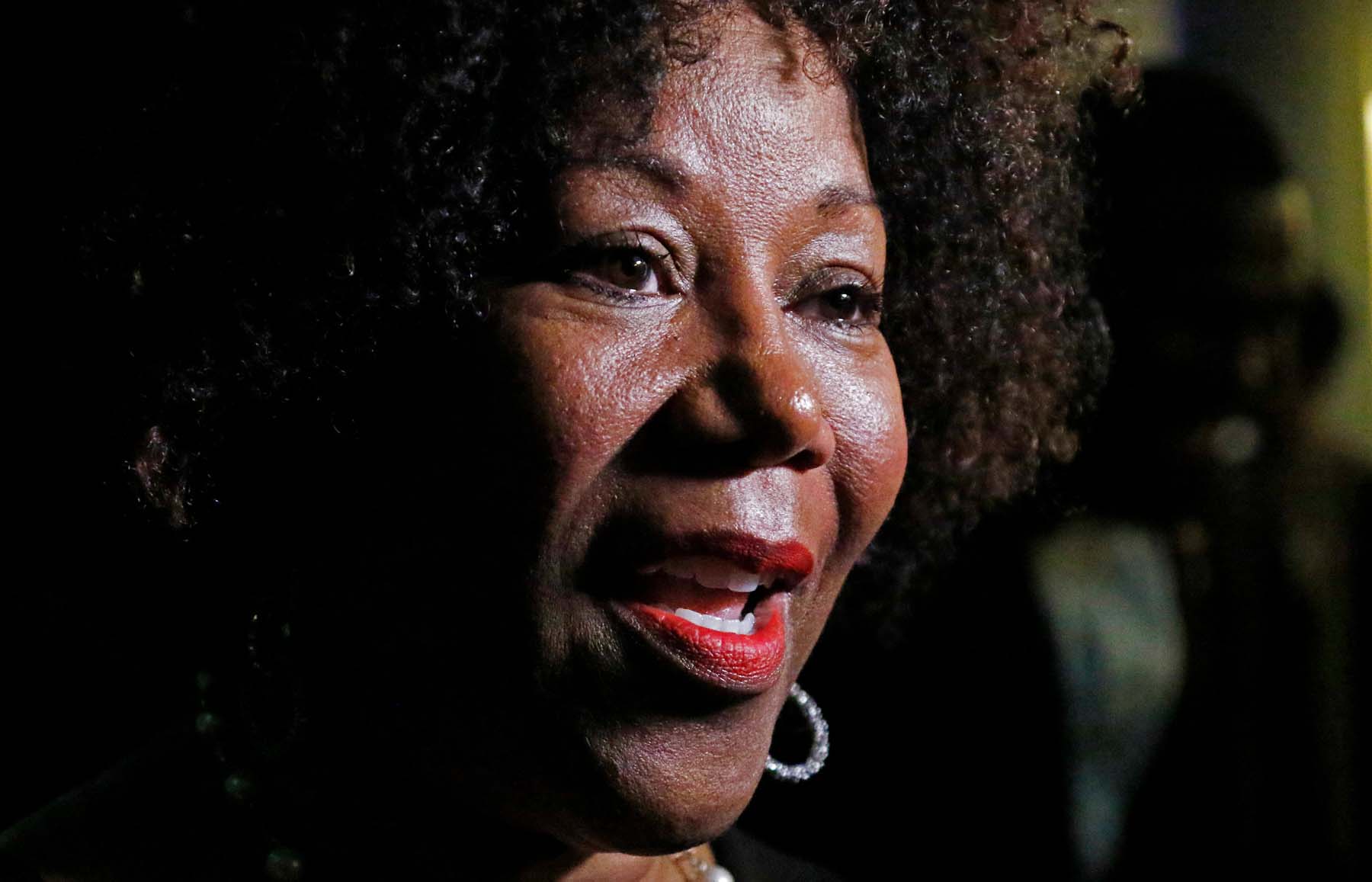
The image of 6-year-old Ruby Bridges being escorted by federal marshals at a New Orleans grade school is a familiar one. The marshals were there to enforce school integration. Angry segregationists taunted Bridges.
White parents pulled their children out of that year. Only one teacher in the school would teach Bridges, the only student in the class.
Today, Bridges helps teach racial tolerance to children and attends a Baptist church she chose for its diverse membership.
“Our babies know nothing about hate or racism. But soon they begin to learn – and only from us.’’
― Ruby Bridges
The Rev. William Barber
The Rev. William Barber is a North Carolina pastor and a leader of the Poor People’s Campaign. He models his peaceful protests and civil disobedience after those of Martin Luther King Jr. He advocates for racial, economic and environmental justice, and safeguarding voting right.
He is a former president of the North Carolina NAACP.
Barber organized Moral Monday protests in North Carolina to oppose unfair laws. The movement evolved into a national movement, self-described as a “multistate movement [that] has emerged from more than a decade of work by grassroots community and religious leaders, organizations, and movements fighting to end systemic racism, poverty, the war economy, environmental destruction, and other injustices.”
He was a keynote speaker at the 2016 Democratic National Convention.
“The Bible tells us that those who fought for justice—those who spoke truth to power, those who refused to accept that injustice and inequality had to exist and that there was no better way—always found themselves hated, hounded, and heaped upon with false accusations simply because they believed in the necessity of speaking and working for the cause of righteousness and building a more just community.”
― The Rev. William Barber
Stacey Abrams
Stacey Abrams is a lawyer, politician, activist and writer. She spent 10 years in the Georgia House of Representatives, serving as minority leader for six of those years.
Abrams narrowly lost to Brian Kemp in the Georgia governor's race in 2018. She’s also running for Georgia governor this year.
“Our ability to participate in government, to elect our leaders and to improve our lives is contingent upon our ability to access the ballot. We know in our heart of hearts that voting is a sacred right.”
― Stacey Abrams

